Shows

CARE Failing ForwardFailing By DefaultWhat happens if we stick with business as usual? We fail by default. C.D. Glin, President, PepsiCo Foundation and Global Head of Social Impact, PepsiCo, Inc talks about food systems are failing women, and what companies can do to correct for that. Thinking with a whole of company approach, beyond just philanthropy, is critical. Companies have to use their profits, their products, their procurement, their people, and their markets if we’re going to achieve #zerohunger. He talks about how COVID-19 was a wake up call to the visceral challenges in the global food system—like climate change and...
2024-09-0331 min
CARE Failing ForwardWhat the market wantsTahira Nizari and Barnabas Mtelevu talk about what it took to overcome the challenges in the tea sector in Tanzania, and how assuming that smallholder women farmers could immediately join a global supply chain demanded new partnerships and new plans. How do you grow from an individual farmer to a business? Don't assume it will happen automatically. Just because you're a businesses doesn't mean it will work. On the other hand, you can't assume a development project is set up to meet market needs. A demonstration factory, joint ownership with women farmers, and getting global investment were part of...
2024-08-2723 min
The Social Impact Journal#52 - Why It's Important To Fail Forward in International Development with Emily Janoch, CAREWant to be the first to know about the latest episodes and have your chance to ask future guests your own questions? Sign up to our newsletter here: http://eepurl.com/iTjWSwJack meets with Emily Janoch, Associate Vice President of Thought Leadership and Design at CARE to discuss the importance of failing forward.Emily started the CARE Failing Forward Podcast to create a space for staff and external stakeholders around the world to talk about the experiences they learn from failure, and how they use that to get better at our work....
2024-08-1921 min
CARE Failing ForwardWhy is your gender analysis disappointing?You've commissioned an analysis to understand the dynamics for women and young people to build a better program, and the results are disappointing. They're too general, too high-level, too obvious. They're accurate, but not useful. What went wrong? Well--you're not alone. MOST of the implementers in the Gender and Youth Activity have the same experience--gender analyses are often disappointing because we do them wrong.
What's the solution? Get more focused, have managers involved in the whole process, and get the team involved in learning, instead of hoping that a consultant can do the learning for you. Great...
2024-08-1331 min
CARE Failing ForwardScary ConversationsWhat happens when your consultation processes go off the rails? Lauren Beriont from The Emgergence Collective talks about how a lot of our feedback and co-creation processes face three major problems:
1) They assume a trust that does not exist between different stakeholders
2) They are centering the wrong actor--the donor or the most powerful group in the process--instead of focusing on the impact the world needs to see.
3) They are looking to validate a plan that is already in place (but maybe not on paper yet), not create a new plan
How...
2024-07-3031 min
Social Impact PioneersVillage Savings and Loan Associations (VSLAs) and women, with Kalkidan Lakew Yihun and Emily JanochWhat are Village Savings and Loan Associations (VSLAs) and why can they be transformative for communities, particularly for women? Social Impact Pioneers Kalkidan (Kal) Lakew and Emily Janoch from the international NGO, CARE, explore how VSLAs facilitate financial inclusion, foster social empowerment and encourage community solidarity.
Kal is the Program Coordinator for CARE's Women (in VSLAs) Respond initiative. Whilst Emily Janoch is the Associate Vice President for Thought Leadership and Design at CARE.
During this conversation, they not only deep dive into the benefits and outcomes of VSLAs but also look critically at the role of international development programme design...
2024-07-1938 min
CARE Failing ForwardWhat's in a Logo?What's in a logo, and why does localization need to include participant-led logo design? Zinat Ara Afroze and Sairana Ahsan explore the logo competition to have frontline service providers design a logo for their own services. What did they learn? Only 9 people out of a potential 450 participated in the competition the first time around, and understanding why not, and what level of understanding it takes to draw a logo that sums up your job showcased how much more shared understanding there was to build. Zinat's recommendation for what you should do? Practice adaptive management and CLA. Check out their...
2024-07-0225 min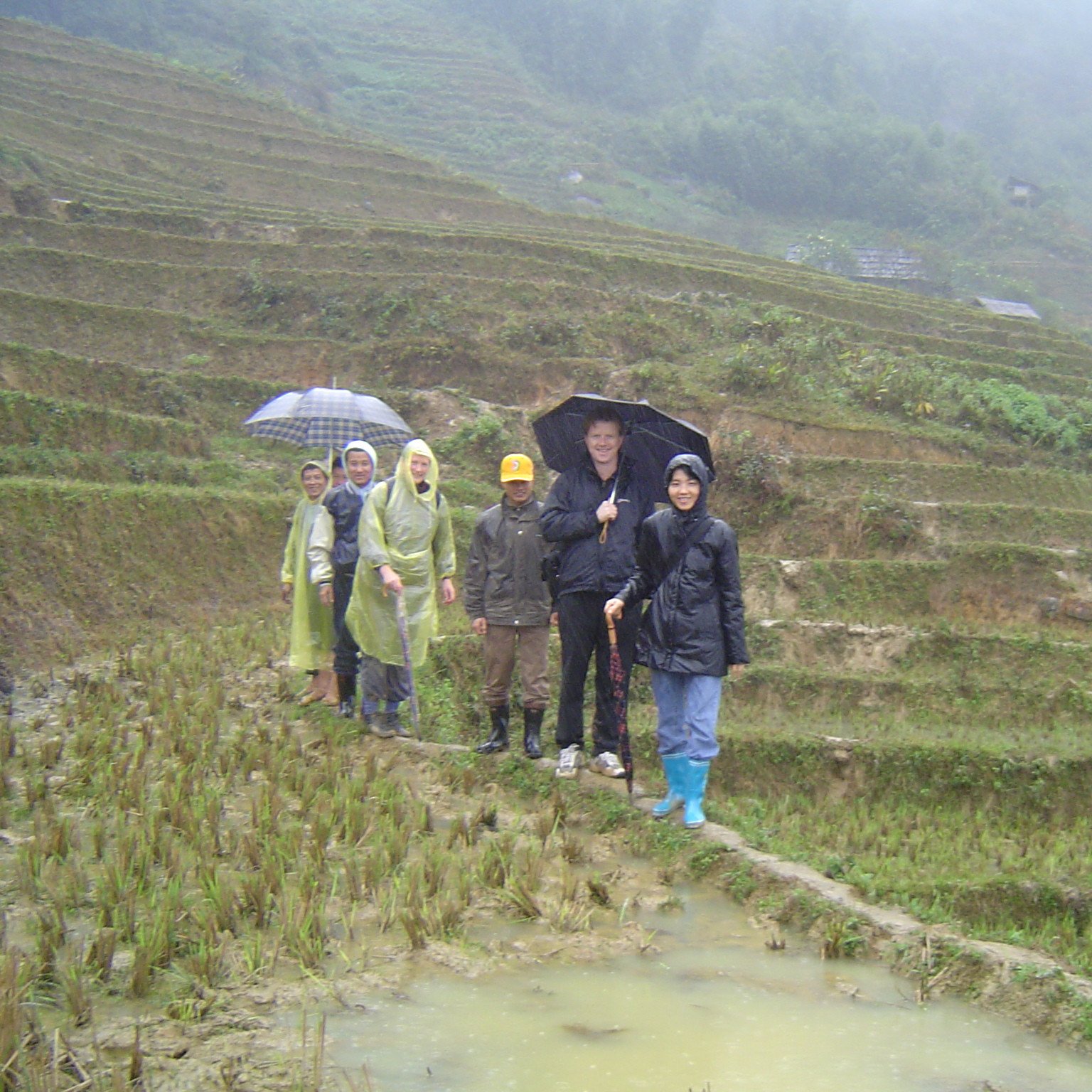
CARE Failing ForwardLearning from Humiliation, Shame, and FailureInspired by his recent blog post on From Poverty to Power, Duncan Green reflects on why it's important to learn from failure, and some of his own failure stories. "Think before you jump", and "be a reflectivist as well as an activist" are some of his key pieces of advice to people working in the sector. He's got stories about playing chess from the management bunker, evidence-based humility, and How Change Happens, the second edition paperback and Open Access that's coming out starting from August 16.
Want to hear more stories from Duncan and the change makers he...
2024-05-1625 min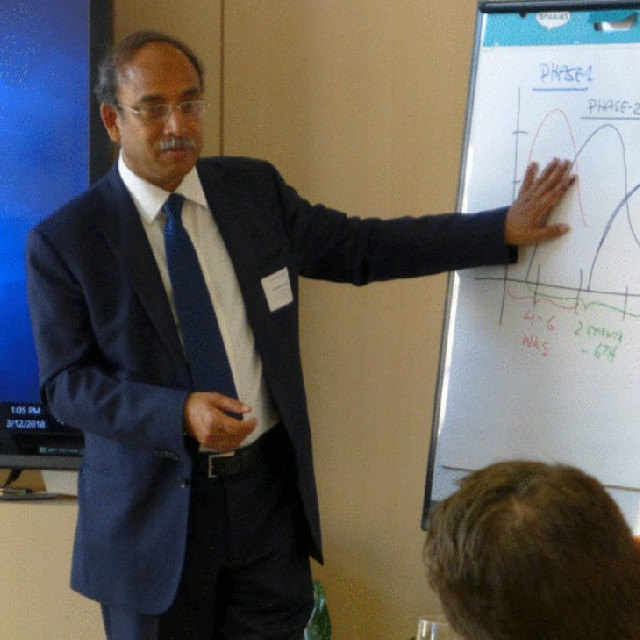
CARE Failing ForwardA Fearless Climate"I wish I had known that my biggest source of learning would be my field colleagues. ...I believed in textbooks." Dr. Muhammad Musa reflects on 41 years of work in international development. His two biggest lessons are: learn from your frontline staff, and tell stories with impact. Some lessons he learned in the decades are to build a fearless climate--a climate of trust, where staff at all levels can learn from failure, and can take time to reflect. He also notes that moving from a project to a movement--one that changes a system--is the best way to create change. Technical...
2024-05-0728 min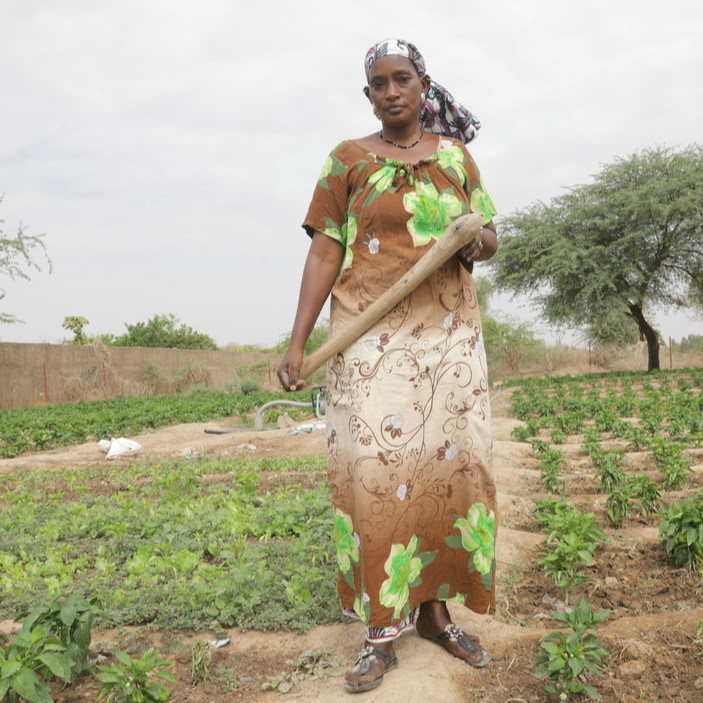
CARE Failing ForwardTransforming Lives Amidst Growing Security Challenges in MaliThe Feed the Future Mali Sugu Yiriwa operates in the Delta Zone of Mali, aiming to strengthen the resilience of farming and business communities through market-driven, inclusive, nutrition-sensitive, and agriculture-driven economic growth. However, the complex nature of Mali’s political situation poses significant challenges to program implementation and participant outreach. In this episode of the Failing Forward Podcast, Laurore Antoine, Chief of Party for Sugu Yiriwa, shares valuable insights into how adaptive leadership, collaboration with local grassroots organizations, and strategic use of digital solutions, among other adaptive management approaches, have been instrumental in achieving program goals and positively impacting li...
2024-04-2213 min
CARE Failing ForwardHave I Solved the Problem: why innovation labs failChristabell Makokha talks about always anchoring innovation to the success metric: have I solved the problem? Instead of focusing on the process, focus on the problem, and whether or not people's lives are getting better. She reflects on why innovation labs fail (inspired by this article from ICTworks). What's going wrong?
We define innovation as "the next new thing" rather than leveraging creative problem solving.
We struggle to find the balance between stand-alone innovation work and innovation integrated with existing programming
We measure the wrong things--too much process measurement, and not enough problem-solving.
Our risk appetite is too...
2024-03-2613 min
CARE Failing ForwardMoving from publication to actionYou’ve done the desk literature reviews, collected and conducted field studies, crafted and deployed surveys, analyzed the data, written up the results, and released your study findings. Is it having any real influence or impact? How do you know? Laura Kim and Michelle LeMeur of the Canopy Lab wrestled with these questions when they attempted to trace uptake by stakeholders of their studies on COVID-19 and the international development workforce: https://www.marketlinks.org/blogs/beyond-downloads-views-and-likes-how-do-you-know-your-research-having-impact
2024-02-2733 min
CARE Failing ForwardStart at the roots: how to turn around failureTitukulane's progress was achieved by addressing the failures it faced in the years leading up to 2023. When the program was first implemented, the COVID-19 pandemic swept the world, making it extremely difficult to implement field-level activities. However, Titukulane was able to turn around its failures by starting from the roots and addressing every aspect of the program. They focused on team building and cross-functional teamwork, built the capacity of the M&E teams, made field engagement a regular task for everyone involved, and engaged participants in multiple activities to diversify their income while keeping sustainability in mind. This was...
2024-01-3014 min
CARE Failing ForwardNotes from a Failure SummitMaria Alemu and Gregory Makabila talk about the Ifaa project's Failure Summit, and what it took to create a culture where failure spurred reflection, learning and action. Lessons from Saint Yared, a learning from failure roadmap, pre-mortem exercises, and the 5 Whys of Failure were all key tools that helped the team learn, adapt, and improve. Check out their reflections, what they would do differently, and the diverse range of tools that helped the team embrace failing forward.
Ifaa is a USAID-funded RFSA project that CRS leads in Ethiopia.
2024-01-1723 min
CARE Failing ForwardA Magical Example of Adolescent Girls LeadingIt's not easy or obvious to not only work with adolescent girls in crisis settings, but also to let them lead. But it is possible. AMAL currently operates in Syria, Nigeria, and Somalia, addressing the unique vulnerabilities of adolescent girls in crisis settings, such as early marriages and adolescent pregnancy. The program includes components like a Young Mother's Club, Community Dialogues, and a health provider curriculum to improve sexual and reproductive health service uptake and enhance participants' life skills. Our guest speaker, Pari Chowdhary, highlights the importance of relationship investments, continuous quality improvement mechanisms, and including adolescent girls in...
2024-01-0331 min
CARE Failing ForwardThere was no blueprint: trying to make COVID-19 vaccines fast and fairKatharine Nasielski, Pari Chowdhary, and Brittany Dernberger talk about Fast and Fair-- CARE's work trying to get COVID-19 vaccines out to the world to meet the global deadline for 80% vaccination rates by September 2022. Advocating for funding and policy change, running programs to support vaccine delivery around the world, and trying to measure global to local impact are all places where we've learned a lot about what we need to do next time. Because like it or not, we need to prepare for a next time. Consistent investments in innovative, nimble, and adaptable are our best shot for future pandemic...
2023-12-0639 min
CARE Failing ForwardToo Many TrainingsIf you looked at a problem and thought, "the answer is more capacity building and more guidelines" Florence Santos says you might need to think again. Based on her experience leading Monitoring and Evaluation at CARE, she's seen a proliferation of tools and resources that aren't really solving the underlying solution. If it's the recommendation you would always have made under any circumstances, you're probably not looking carefully enough at the solution. Florence reflects on how she would get to a solution with fewer tools and trainings, and more systematic follow through.
2023-11-2127 min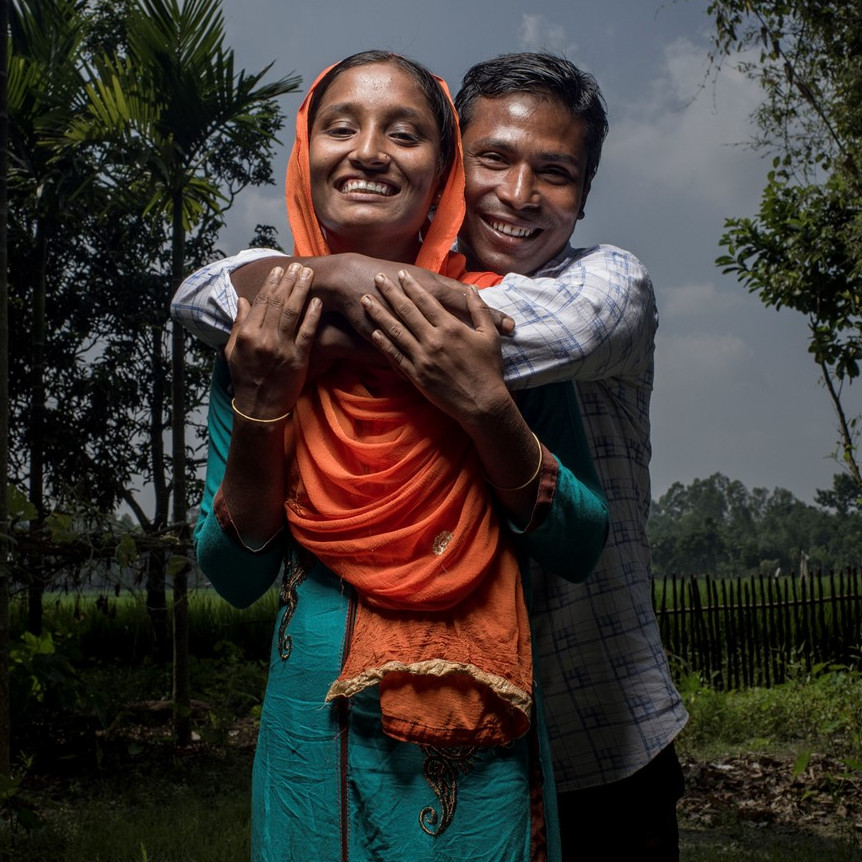
CARE Failing ForwardReimagining IMAGINECARE implemented the Inspiring Married Adolescent Girls to Imagine New Empowered Futures (IMAGINE) project to design & test interventions aimed at delaying the timing of first birth among married adolescents in Niger (Zinder region) and Bangladesh (Kurigram district) between 2016 and 2022. Rachael Goba explains how the IMAGINE journey went on married adolescent girls envisioning, valuing and pursuing alternative life trajectories. For example, after 22 months of implementation, contraceptive use in Niger was significantly higher in the treatment group compared to the control group; and higher for those who have had a birth compared to those who have not.
2023-11-0822 min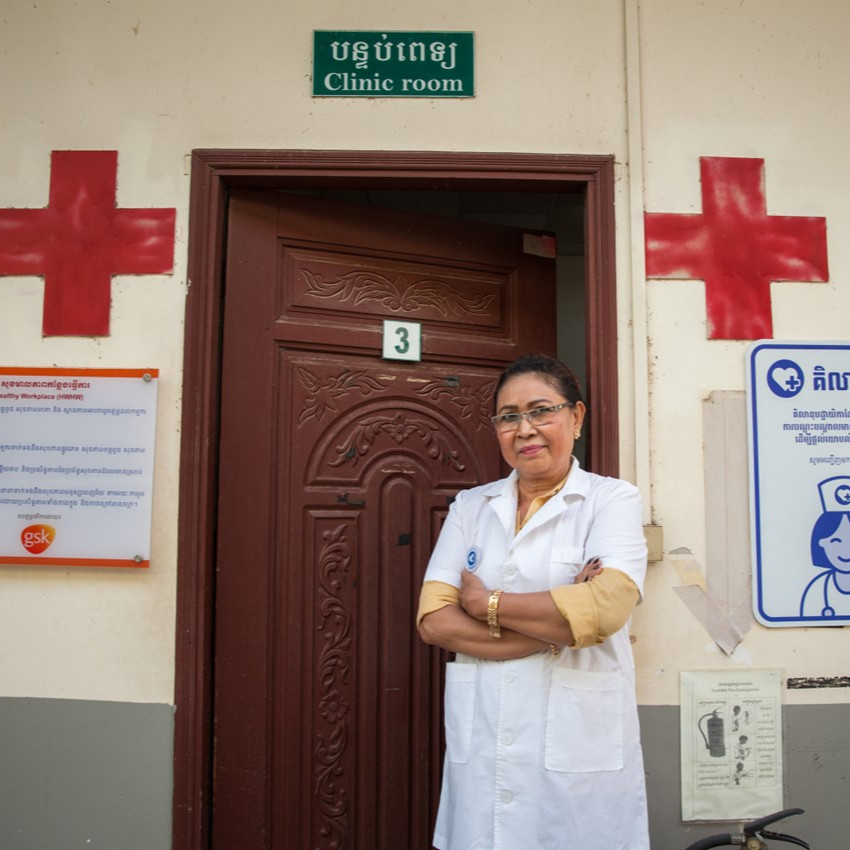
CARE Failing ForwardThe New Usual: Supporting Frontline Healthworkers as a goal, not a toolFrontline health workers play a critical role in delivering health services globally, especially to the hardest to reach populations. Despite their importance to health systems and universal health coverage goals, this majority female workforce faces diverse and ongoing barriers affecting their working conditions and capacity. Pari Chowdhary talks about how at CARE, we aim to bring support and work with and for FLHWs to achieve healthy outcomes across our programming countries, but also, we aim to bridge key gaps like equipping and training FLHWs.
2023-10-2524 min
CARE Failing ForwardConnecting Learning to DecisionsThis time on the other side of the mic, Emily Janoch talks about what it takes to truly move from learning to changing the choices we make, and the hard commitment to "do it differently, not just next time, but every time after that." We all need to be accountable to impact. How do we remove the idea that we are the heroes of the story in development, and how do we acknowledge our own privileges, let them go, and learn to deploy them for others instead of ourselves. Christabell Makhokha hosts, asks great questions, and helps hold a...
2023-10-1128 min
CARE Failing ForwardCozy with the contextMonalisa Salib wants you to get cozy with the context. If your theory of change is full of assumptions and logical statements that could easily be true anywhere in the world, it's probably not going to work. Only by understanding the context where we operate and respecting the actors and the expertise in that context will real change happen. That means knowing the specific players, actors, and dynamics where change gets done. Another tip she has for you: people matter more than process, and technical solutions will never be enough.
2023-09-2129 min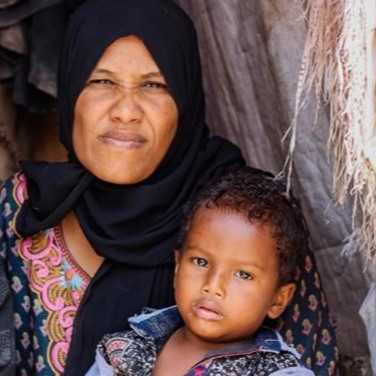
CARE Failing ForwardIt is possible: Savings groups in emergenciesNatacha Brice--who runs CARE's work on Village Savings and Lending Associations in Emergencies (VSLAiE)--wants you to know two things about doing group savings in crisis settings: 1) It is possible, and it will have big impacts; 2) it's going to take a lot of hard work to do it right. You can build capital in crisis, which changes how we think about both our long term programming and our emergency response. There's a lot we've learned on the journey. Thanks to Beja Turner for hosting!
2023-09-0623 min
CARE Failing ForwardGetting Rigor RightWhy do we spend so much time and money on gathering data we never use? Why can't we always find the data we need to make good decisions? Christina Synowiec from Results for Development talks about Getting Rigor Right, and article she co-authored on deciding how rigorous data needs to be based on the decision you are trying to make. Sometimes you need quick, indicative data. Sometimes you need people's voices. (Often you need both). You always need data, but only sometimes do you need the most rigorous data to make a good decision.
2023-08-2433 min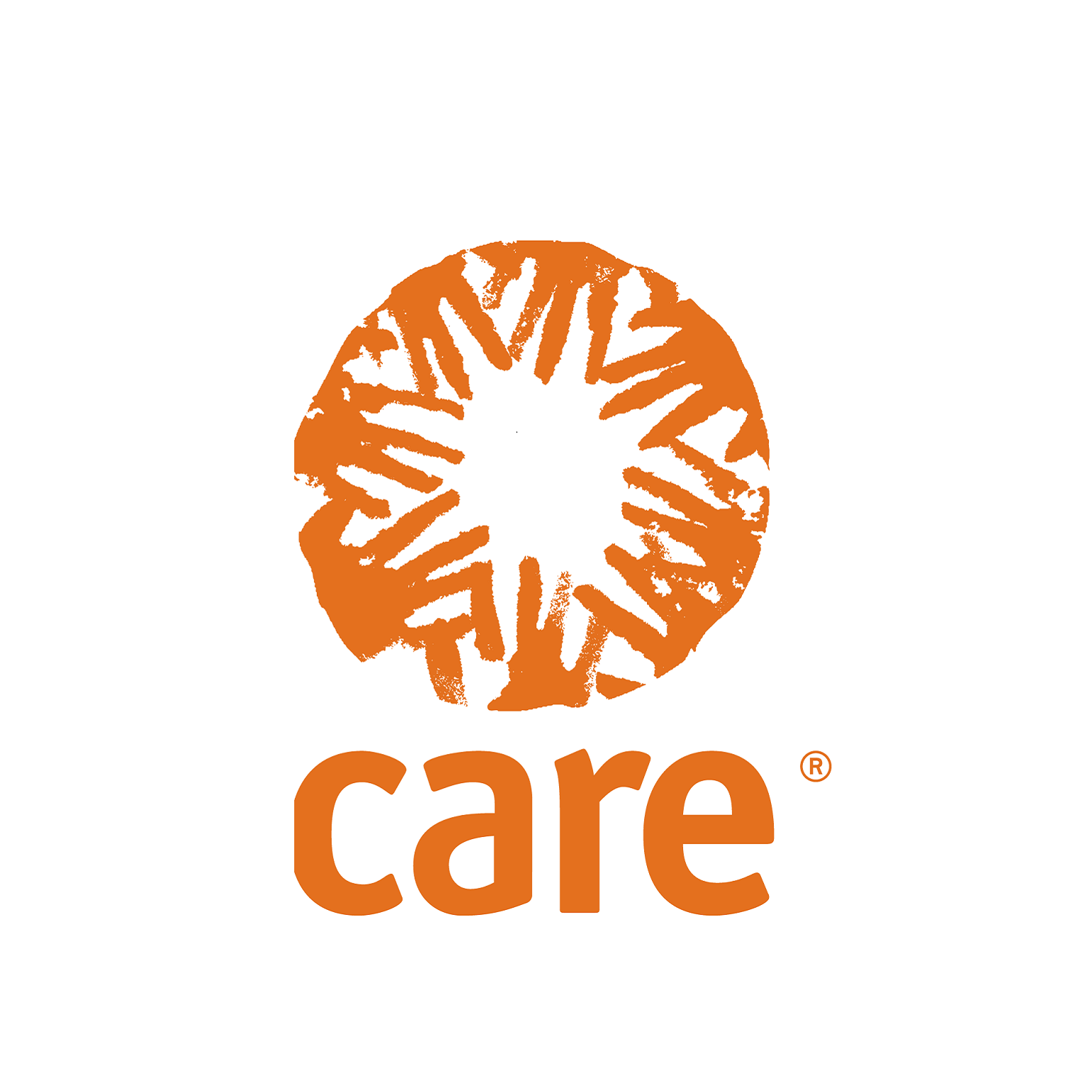
CARE Failing ForwardBalancing Risk and Agility: The benefits and challenges of 78 years of organizational expertiseIn our 100th episode, Michelle Nunn talks about lessons learned since she last joined the podcast with Fourth Quarter Failure, including navigating challenges we never predicted--like COVID-19 and the conflict in Ukraine. Some of her reflections include that we have to lean more into local leadership and networks with humility, we have to lighten our systems, and we have to create a space where everyone can be a change agent. Building new tools to listen to the women we work with faster and more completely, balancing risk, and becoming agile are some of the thoughts at the top of...
2023-08-1025 min
CARE Failing ForwardReigniting Empowerment: Redesigning staff diversity training to prevent harmAqsa Khan and Diana Wu talk about the journey to re-imagine and redesign CARE's Reflections on Diversity, Equity and Inclusion (REDI) training after getting feedback that the previous version was harming staff with marginalized identities. Even with the best intentions, diversity trainings can do more harm than good. So we had to redesign ours. Change only happens when you commit to doing the work. Staff have to reflect, to change, and commit to grow. Some of the other key lessons they shared: senior leadership commitment is critical, we need to focus more on accountability, not just awareness, and budgets...
2023-08-0327 min
CARE Failing ForwardAvoiding Hothouse FlowersJoshua Muskin from Geneva Global talks about the incentives and biases that cause programmers to design "hothouse flowers"--projects that will only work inside the special resource and attention environment of a startup and a pilot. To get to scale, you need to think beyond the hothouse, to what will work under the hardest conditions, not the easiest ones. Who scales, what resources they have, and what their goals and incentives are contribute so much more to scale than having an elegant solution from the outside. "Be more trust based" is just one of Joshua's tips on how to...
2023-07-0534 min
CARE Failing ForwardTelling the Truth in LoveRachel Wolff talks about the journey to cede power to local organizations, and continuing to push to center people in the most marginalized communities as the leaders, responders, and decision makers in their own lives. We need to put more power and more voice for impact into our partners, and be accountable for impact. Rachel talks about Nepal's Humanitarian Partnerships Platform, and how much faster partners are at stepping into the lead. Mutual respect, being flexible, and telling the truth in love so we can all get better are powerful tools. And speaking of power--remember when you have it...
2023-05-2322 min
CARE Failing ForwardDon’t Feed the ZombiesKevin Starr talks about his article "Don't Feed the Zombies" and how if we focus on measuring reach, instead of caring about impact, we end up doing harm in the world. His vision is a world where you can't get taken seriously if you can't talk about real, measurable change in the lives of people we serve, and the evidence to back it up. "The minute you commit to impact, and a definition thereof, you're starting to be part of the solution." What's a definition of impact? Evidence of change that happened in someone's life, and a plausible description...
2023-05-0829 min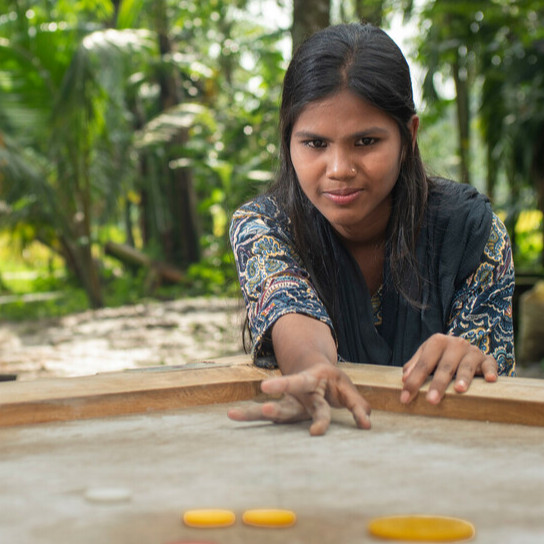
CARE Failing ForwardLife Happens: Balancing Rigor and Lived TruthAnne Sprinkel talks about trying to implement, translate, and apply learnings from a Randomized Controlled Trial (RCT) in the middle of a pandemic. "Communities are not laboratories, and they deserve so much more." She talks about how to combine qualitative data and triangulate different perspectives in an RCT, and all of the learning around it. "Simply taking one person at their word...that is truth." Anne first joined the podcast in 2019, talking about Square Pegs and Round Holes and fitting research to community needs. Nearly four years later, she's talking about what their RCT told them, social norms findings...
2023-04-2626 min
CARE Failing ForwardFrom $2 to $20: getting more impact for the dollar in international developmentMark Muckerheide talks about what it would take to close the gap that international development aims to work on. Right now, Mark's team estimates that many programs get $2 for every dollar they put in. To truly close the gap, it needs to be $20 per dollar in. So how do we get 10 times better? Focus on putting "money in her pockets" and think about measuring efficiency by the benefits to women who make less than $4 per day. That means we need to think about the bigger system, and fixing the market failures that prevent women from participating fully.
2023-03-2025 min
CARE Failing ForwardWhy Resilience Beats SustainabilitySustainability fails because it assumes progress is a straight line, and things will always be getting better. Gloria Steele talks about why our thinking about how COVID, climate change, and conflict show us that we need resilience, the ability of people and systems to bounce back. Sustainability is continuing to do what others define as progress. Resilience is being able to choose the path that works for you. What's an example of resilience? Refusing to allow gender norms to define who has capacity, and what capacities they have. Another tip she has is "we are only as good as...
2023-03-0620 min
CARE Failing ForwardStop Analyzing and ActCrystal Simeoni, the Director of NAWI Collective, shares tips for decolonizing, deconstructing, bravery, and joy in development. International development gets so much wrong, but there are ways to be better. Some of Crystal's tips include: align your operations with your values, give up power, center care, and just get it done. You know what you need to do; stop analyzing and act. A few other key pieces of advice: "slow it way down," "pull your head up from your laptop," and "the narrative of capacity is a lie." Crystal helps think about redefining success, and who gets to build...
2023-02-2026 min
CARE Failing ForwardPerception is EverythingWhen you're leading a change to have more equity in your staffing practices, people who hold privilege will feel that they are losing power, no matter what the data says. You also don't usually get to such a profound organizational change unless you REALLY have a problem. Listen to Esther Watts talk about how CARE Ethiopia had to change it's policies and practices so the staff was no longer 26% women--the worst equity rate of any office in the CARE federation, and what they had to do to get there. Diversity makes a difference, and you have to have a...
2023-01-1030 min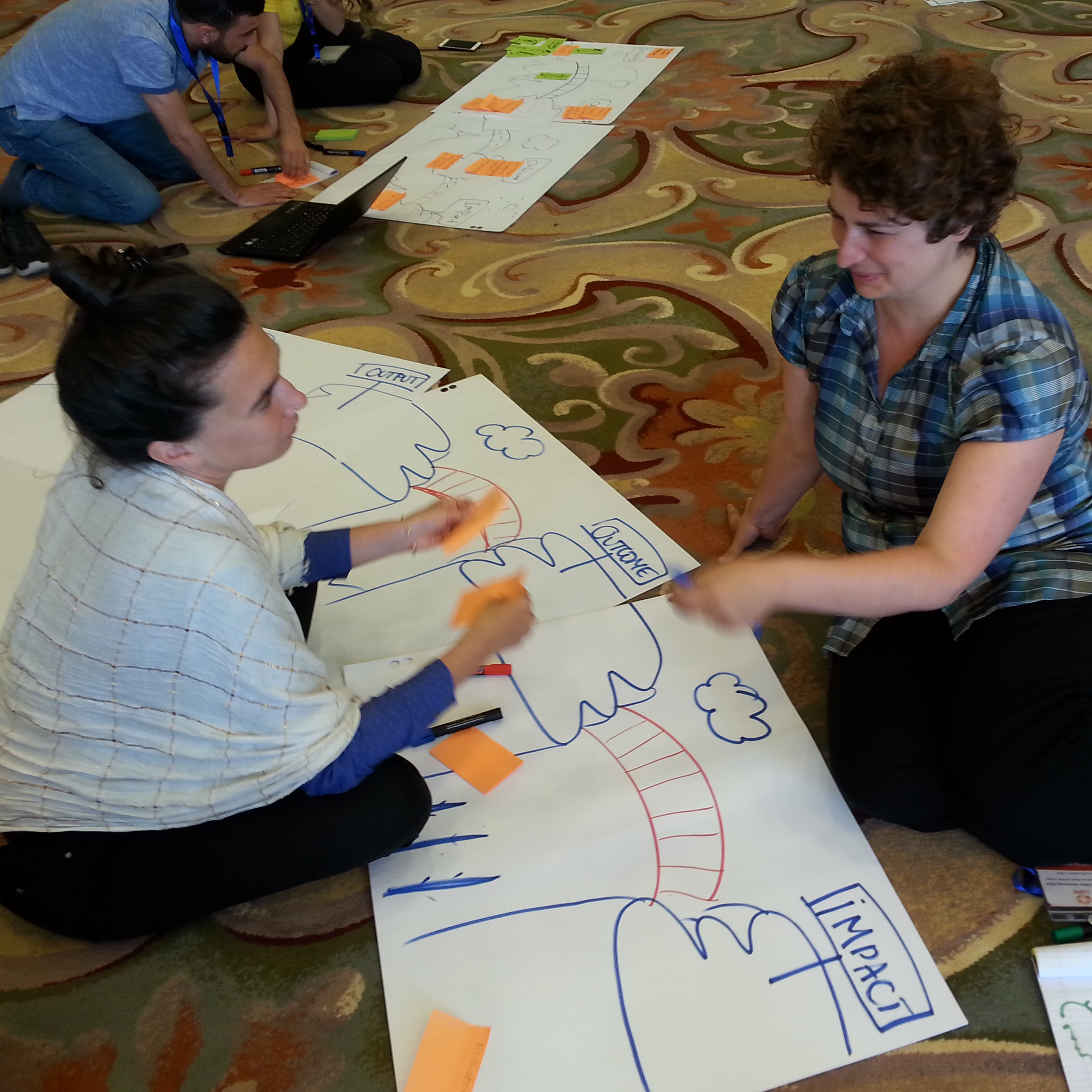
CARE Failing ForwardSit in the FailureWe learn more when we have to sit in a failure than we do when we succeed. Listen to Sarah Eckhoff talk about what happened when we offered and opt out to CARE's Gender Marker. It showed us a lot about commitments to the process, data overload, and when reporting is optional. It also changed our approach to supporting teams in the gender marker process.
2022-12-2014 min
CARE Failing ForwardGet Over It: Learning from Failure 2022"If failure is uncomfortable, get over it." Rebecca Rosetti and Tara Ross talk about CARE's 2022 Learning from Failure, and how their background in laboratory sciences helped them learn early that failure is inevitable. "Failure is just data." They talk about what CARE sees as big gaps this year--partnerships and sustainability--and how we can now see that projects are improving over time. Gender and M&E have been two big areas of improvement since we started.
2022-12-1317 min
CARE Failing ForwardThe Data Belongs to ThemIn part 2 of her podcast, Kalkidan Yihun talks about how to make sure that data transforms into action--and especially that women and girls who contribute data get that data back in ways they can use themselves. Instead of extractive processes that feed into a black box that communities never see, think about how to format and share data so women can act. Who needs to see it? Who will take action? What ways make sharing that data safe for people who provided it? Kal coordinates the Women Respond project, and offers tips and lessons about what doesn't work (and...
2022-11-1620 min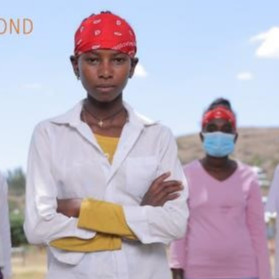
CARE Failing ForwardWe should not be a burdenKalkidan Yihun talks about how to redesign data collection so it centers what people--especially women--want and need, instead of being a burden on their time and lives because of what's easiest for the data collectors and researchers. Kal coordinates the Women Respond project, and offers tips and lessons about what doesn't work (and does) in putting women's voices first.
2022-11-0912 min
CARE Failing ForwardAlways Have a Plan B: How to Assess Risk within PartnershipsWhat do you do when your pursuit of a necessary program partner falls through? Don’t waste time on pushing a failed strategy, and don’t be afraid to move on. How do you guarantee commitment from partners early on? Assess interest from partners to ensure equal buy-in on both sides. Naureen Chaudhry identifies two challenges and the resulting lessons experienced by the CARE Pakistan team while working with female entrepreneurs through the CARE Ignite Program.
2022-11-0210 min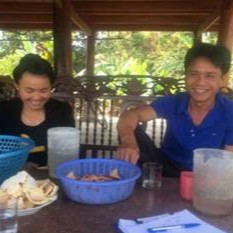
CARE Failing ForwardKnow Your PartnersTran Thi Minh Nguyet discusses her experience with working to increase access to finance for local micro and small women-led businesses in Vietnam through the CARE Ignite program. Partnerships with microfinance institutions can prove to be very difficult in these contexts. How to work against experiencing potential failures with these partners? Build in flexibility in financial product development that allows for pivots in the face of issues. Additionally, have a deep understanding of your partner from the start and develop output based contracts with potential partners to prevent failures during product rollout.
2022-10-1906 min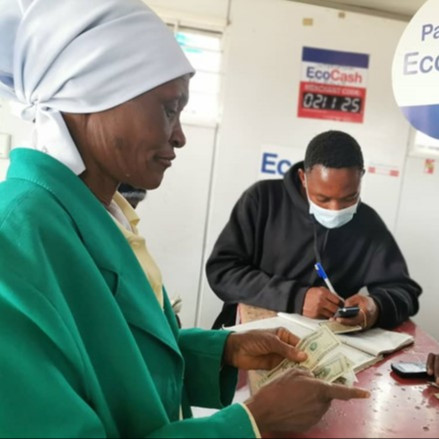
CARE Failing ForwardWhat we think we know: why cash didn’t work without addressing GBVCash transfers designed to help women re-enter markets after COVID-19 lockdowns lifted worked really well, AFTER we added programming to address GBV. Partway through the project, gender dialogues showed that women were facing so much violence that even cash was not enough to get back into the market. So the project re-designed their work to include social norms and addressing GBV, and helped more than 1,400 vendors get back on track. Media Matyanga talks about what the team learned, how they learned it, and what they did next.
2022-10-0522 min
CARE Failing ForwardLa conversación difícil e incómoda (en español)Como trabajadores humanitarios/as la conversación difícil e incómoda es muchas veces necesaria, si de verdad queremos tratar a fondo temas como el antirracismo, la descolonización y la igualdad de género.
Resumen: Considerando temas mencionados entre los diferentes podcasts anteriores y en vísperas de la Vision 2030 decidimos realizar nuestro primer podcast en Castellano con el fin de hablar sobre temas como lo son la aceptación de los errores, el antirracismo, la descolonización y feminismo. Y cómo crear espacios de reflexión dentro de los diversos equipos que promuevan el re...
2022-09-2035 min
CARE Failing ForwardMyths about FlexibilityRojan Bolling and Hannah Itcovitz talk about their paper on how to design flexible programs that work for fragile settings. Along the way, they discovered 4 myths that everyone believes work, but that really don't. Flexibility can make a huge difference--especially in complex contexts--and that makes it even more important that we do it well. The idea of flexibility in institutions and relations, not just in operations, and getting beyond a 15% budget benchmark are two of their key insights.
2022-09-0634 min
CARE Failing ForwardInnovation is not enough: Gender, Technology, and Water in KenyaSolar water pumps were a great business opportunity for women in northern Kenya--so great that as soon as businesses were profitable, men took over and shut women out of both the business, and sometimes access to water. Dorothy Aseyo from CARE Kenya talks about what she learned about how to pick technologies, pick partners, and make sure that when your goal is women having successful businesses, you don't set up systems for failure. Keeping track of who leads and adapting quickly are some of her key lessons
2022-07-2527 min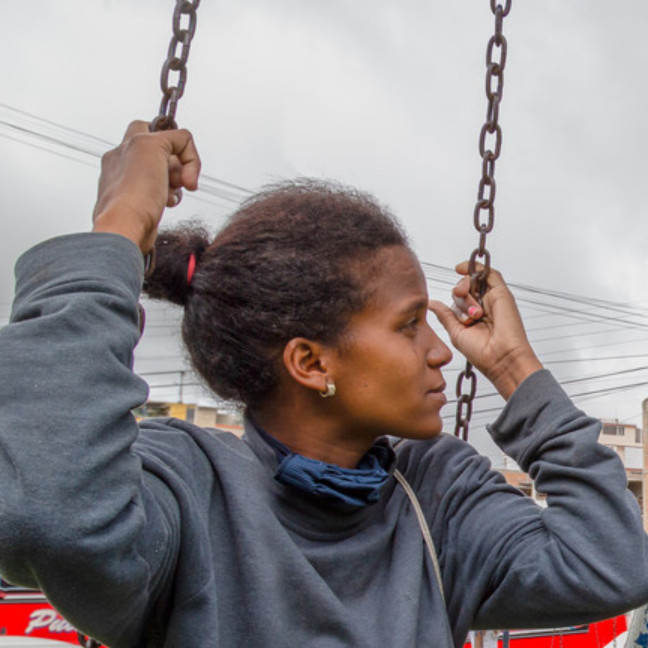
CARE Failing ForwardThe Chance To Choose Something Different: Crypto, Cash, and RefugeesMonica Tobar and Ronald Picso talk about their experience working with cryptocurrency instead of cash to support refugees and host communities in Ecuador. Some key lessons? Just do it--don't spend all of your time trying to get everything perfect. Get lots of feedback--participants will tell you what's not working. Build more supply--get many vendors up to speed on crypto so people have choices about where to shop. Plan for training--it takes time to learn a new technology, especially in a crisis. Plan lots of time to support people in using and adopting a new tool, it won't happen overnight.
2022-05-2628 min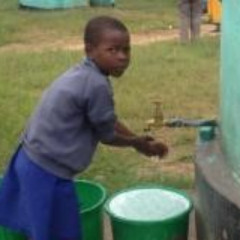
CARE Failing ForwardDon’t Be Afraid to Stop When It’s Not WorkingWe talk about sustainability all the time, and commit to guaranteeing it in almost every development program. But is it really working? CARE launched a series of post-project studies to find out what lasts and what doesn't after a project closes. Caitlin Shannon and Maria Tobin talk about what they learned doesn't work. A few tips they saw across all 9 research studies:
No matter how good it is, training alone is not enough for sustained impact.
If you can't figure out how people will get paid in the long term, it probably won't last.
You have to design...
2022-05-0226 min
CARE Failing ForwardReflection and Risk: Lessons from Girl-Led Activism"You have to believe that girls have the power. You don't empower the girl; you have to see the power in her." Suniti Neogy from CARE and Jayanthi Pushkaran talk about lessons from girl-led activism in the Tipping Point project, adapting a model from EMpower in India to Bangladesh and Nepal. What would they do differently now? Have girls lead more! It's very difficult for adults to let go of control, but girls can lead themselves. Ask them the questions; don't tell them the answers. Help girls think through risks and what activism means for them, and how we...
2022-03-0124 min
CARE Failing ForwardMore listening: Taking feedback to create and use more effective standardsMadj Sawan from Ihsan for Relief and Development Organization, Fe Kagahastian from CashCap’s Syria response, Ola Batta from the Shafak Organization, and Reem Khamis from UNFPA describe their experience from the Cash and GBV working group. Why was 9 years into the crisis the right time to get started? How do we overcome the failure that most cash responses aren’t focusing on survivors of GBV? They shared the process that helped them get to a better set of standard procedures, and what we have to do to make them real in the way we do programs.
This p...
2022-02-1808 min
CARE Failing ForwardIt’s not a choice: Connecting Cash and GBVFe Kagahastian from CashCap’s Syria response and Reem Khamis from UNFPA talk about the importance of getting Cash practitioners and experts in supporting GBV survivors. Doing it wrong sets off all kinds of alarm bells, because if we do it wrong, we can hurt the people we’re trying to support. We need to speak “not necessarily the same language, but at least an understandable language.”
This podcast is produced in partnership with the Women's Refugee Commission and with support from the Swiss Agency for Development and Cooperation (SDC).
2022-02-1605 min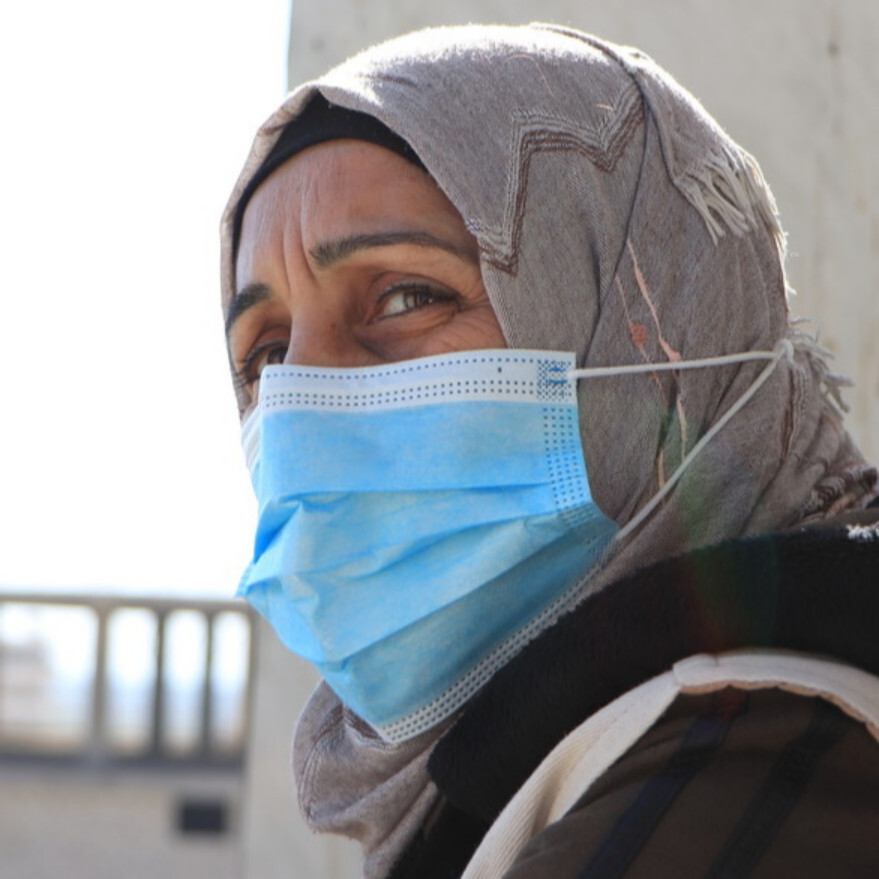
CARE Failing ForwardMove faster: Finding ways to support GBV Survivors with Cash Services (English)Madj Sawan from Ihsan for Relief and Development Organization and Ola Batta from the Shafak Organization talk about the challenges they see while working on cash responses to protect women and girls and support survivors of Gender-based Violence in Syria. Some of their recommendations are to speed up the cash process so survivors can get services fast, to make sure there is a referral system in place, and to prioritize survivors and take action to support them. This podcast is produced in partnership with the Women's Refugee Commission and with support from the Swiss Agency for Development and Cooperati...
2022-02-1114 min
CARE Failing ForwardMove faster: Finding ways to support GBV Survivors with Cash Services (Arabic)ARABIC Podcast. Madj Sawan from Ihsan for Relief and Development Organization and Ola Batta from the Shafak Organization talk about the challenges they see while working on cash responses to protect women and girls and support survivors of Gender-based Violence in Syria. Some of their recommendations are to speed up the cash process so survivors can get services fast, to make sure there is a referral system in place, and to prioritize survivors and take action to support them. This podcast is produced in partnership with the Women's Refugee Commission and with support from the Swiss Agency for Developme...
2022-02-0917 min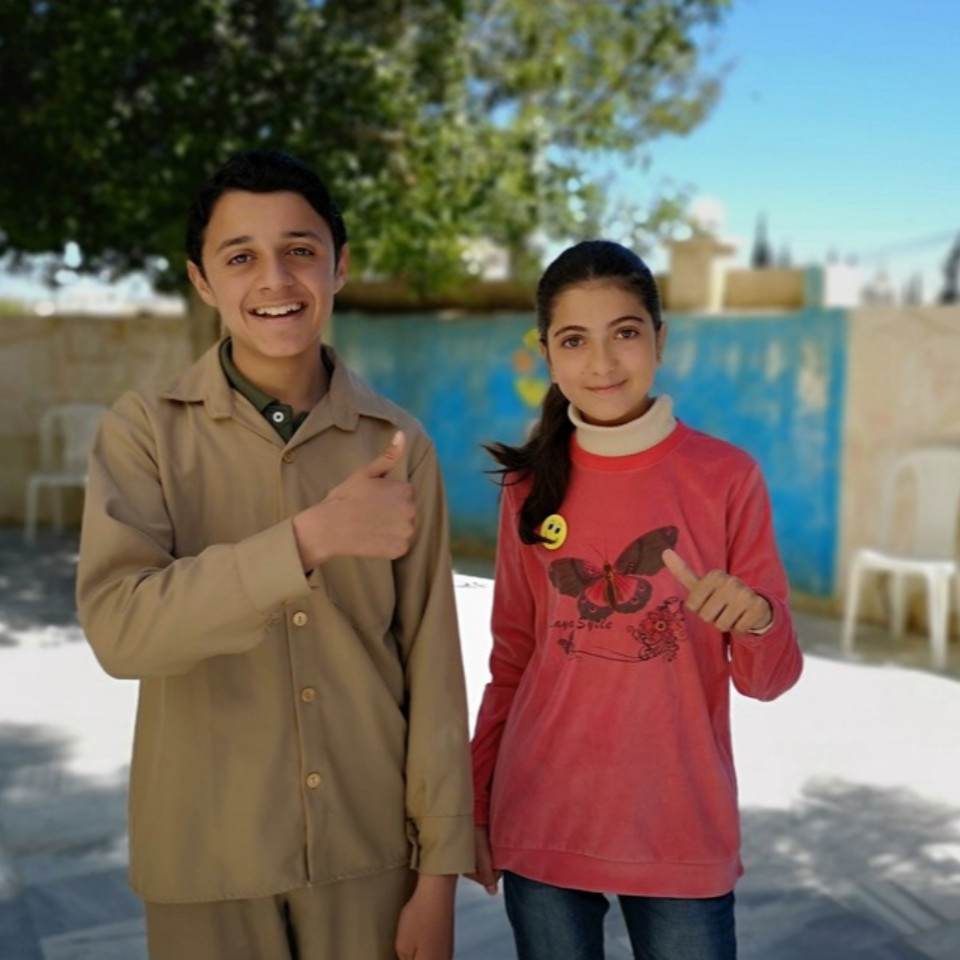
CARE Failing ForwardEfficient, Effective, or Inexpensive: Looking at Cost Efficiency for Impact, Not Just SavingsNour AlSaaideh and Heba Abu Deyak reflect on what they learned doing cost efficiency analysis with the Dioptra tool. When they look at Conditional Cash Transfers for Education, cost is one metric, but it's not the only--or maybe even the most important one. Learn more about how we can focus on effectiveness AND efficiency so that when we lower costs, we don't compromise on impacts. Focusing on just cost runs the risk of creating programs that reach a lot more people without providing useful impacts in their lives. Do it well, and with some structure, can you can learn...
2022-01-1124 min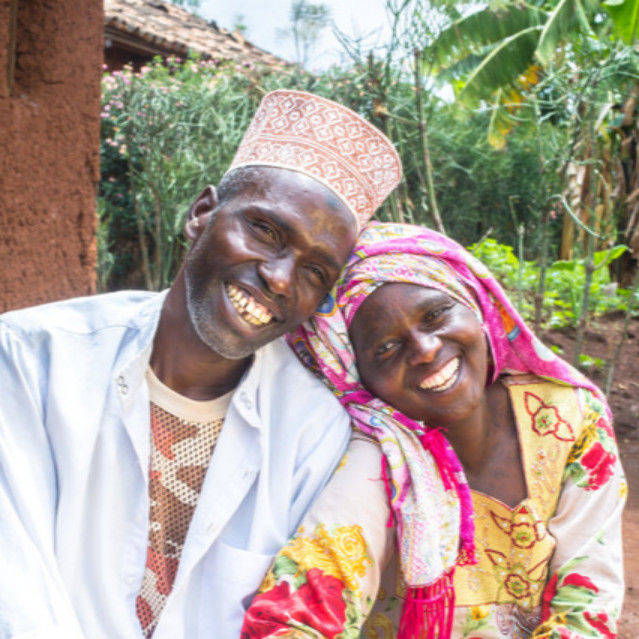
CARE Failing ForwardGender Equality in Savings Groups: Women Cannot Do It AloneTheophile Twahirwa from CARE Rwanda talks about what the team has learned in more than a decade of programming on Women's Economic Empowerment and savings groups. What did they find out? Savings is not enough; economic empowerment is not enough; investing in women is not enough. The team learned that true change comes from investing in equality--working with women, and also with the men in their lives and the systems of power they all face and replicate. Looking over a decade of learning, including the Indashyikirwa project, the team sees transformational change, and talks about where to go next.
2022-01-0426 min
CARE Failing ForwardDesigning Cash Programming to Reduce Gender Based Violence (English)In this English version recorded based on translations from the original Arabic podcasts, Fatima Azzeh from CARE interviews Samar Karamo and Baraa Bobaki from IHSAN Relief and Development, who talk about what they've learned on designing cash programming so it supports and protects women facing gender-based violence. This interview his interview covers why cash is important, how to make sure we don't retraumatize survivors, and the importance of understanding local context and testing our approach. It also shows how important it is to set up safety plans, think about potential harm, and build in holistic services. This podcast is...
2021-12-2017 min
CARE Failing ForwardDesigning Cash programming to reduce gender based violence: Part 2 (Arabic)Fatima Azzeh from CARE interviews Samar Karamo and Baraa Bobaki from IHSAN Relief and Development, who talk about what they've learned on designing cash programming so it supports and protects women facing gender-based violence. The second in a 2-part series (check out part one here), this interview covers how important it is to set up safety plans, think about potential harm, and build in holistic services. This podcast is produced in partnership with the Women's Refugee Commission and with support from the Swiss Agency for Development and Cooperation (SDC). CARE and WRC’s programming that integrates CVA into GBV re...
2021-12-1518 min
CARE Failing ForwardDesigning Cash to reduce Gender Based Violence (Arabic)In our first ever Arabic podcast, Fatima Azzeh from CARE interviews Samar Karamo and Baraa Bobaki with IHSAN Relief and Development, who talk about what they've learned on designing cash programming so it supports and protects women facing gender-based violence. The first in a 2-part series, this interview covers why cash is important, how to make sure we don't retraumatize survivors, and the importance of understanding local context and testing our approach. This podcast is produced in partnership with the Women's Refugee Commission and with support from the Swiss Agency for Development and Cooperation (SDC). CARE and WRC’s pr...
2021-12-1328 min
CARE Failing ForwardGet Beyond Your Own AssumptionsHolly Radice reflects on 3 years of cash and voucher programming at CARE, where we've grown, and where we need to invest more. Working with cash and vouchers to ensure that we're supporting gender equality and reducing risks of GBV is possible, but it's also a challenge. Here are some places that we need to strengthen: get participants more involved in design, listen to feedback, and understand that you've always got different levels of skills and experience are some of her big recommendations. She also says we need to be patient with ourselves, and always learning more.
2021-10-1218 min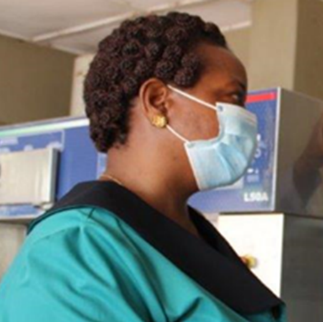
CARE Failing ForwardTreat the System, Not the DiseaseAmani Idfonce from CARE Tanazania talks about how reinforcing the whole health system--especially with community health workers--makes it possible to get an even better COVID response than focusing on the disease alone would have done. How did they manage it? They worked on aligning with existing priorities, thinking about infectious diseases more broadly, and remembered to keep regular services running. Read more about the project here.
2021-08-2720 min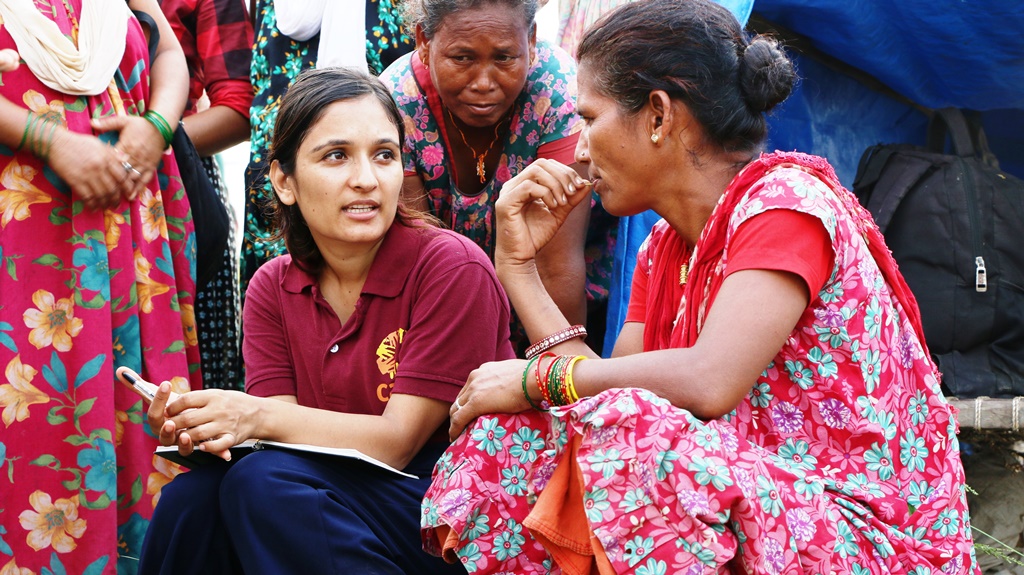
CARE Failing ForwardWe are not superior: lessons on working authentically with local organizationsMona Sherpa from CARE Nepal reflects on lessons learned in responding to emergencies in true collaboration with local partners. "We are not superior. Learning has to go both ways," she says. It's not just about your plans on paper or your commitment to principles, but also your actions and your systems.
2021-05-1120 min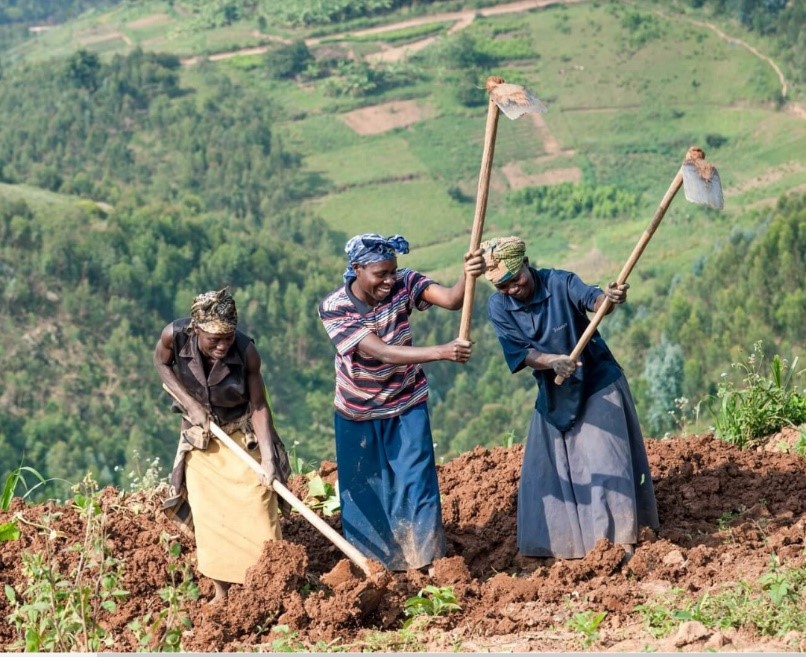
CARE Failing ForwardBreaking Inward: Digital Failures and Who Bears the RiskZachary Vinyard from the One Acre Fund talks about how digital projects in Rwanda failed because of too many assumptions about what worked for farmers. His team has a new report on Digital Innovations, and how to get better. Key tips? Break inward. Design experiments so if they fail, the organization bears all of the extra risk and extra work, and the farmers you serve don't have to take it on. Also, don't assume just because the code works that it will work for people. The benefits we care about are to farmers, not to functional code.
2021-04-3021 min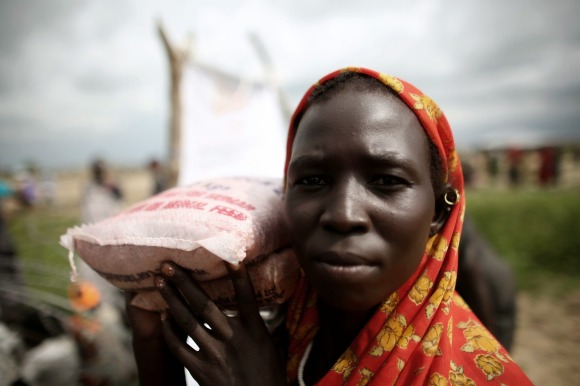
CARE Failing ForwardDon't Try to Win: Lessons from innovation failures in the humanitarian sector"Don't try to win for yourself. Try to win for impact." Rahul Chandran talks about what he terms the catastrophic failure of innovation in the humanitarian sector, why importing the Silicone Valley model of innovation and scale doesn't work, and how collective action and anti-racism are the only solutions. "Scale isn't about big" is just one of his provocations to the sector at large.
2021-04-0919 min
CARE Failing ForwardWhere White Feminism has Failed: Linking women's empowerment with anti-racismAllison Burden, CARE International's Head of Programming, reflects on where white feminist traditions have failed at anti-racism, what that means for white feminists to improve their own behavior (hint: listening and humility are two big tips), and what that means for the system of international development where we're working towards equality, human rights, and decolonization.
2021-02-0119 min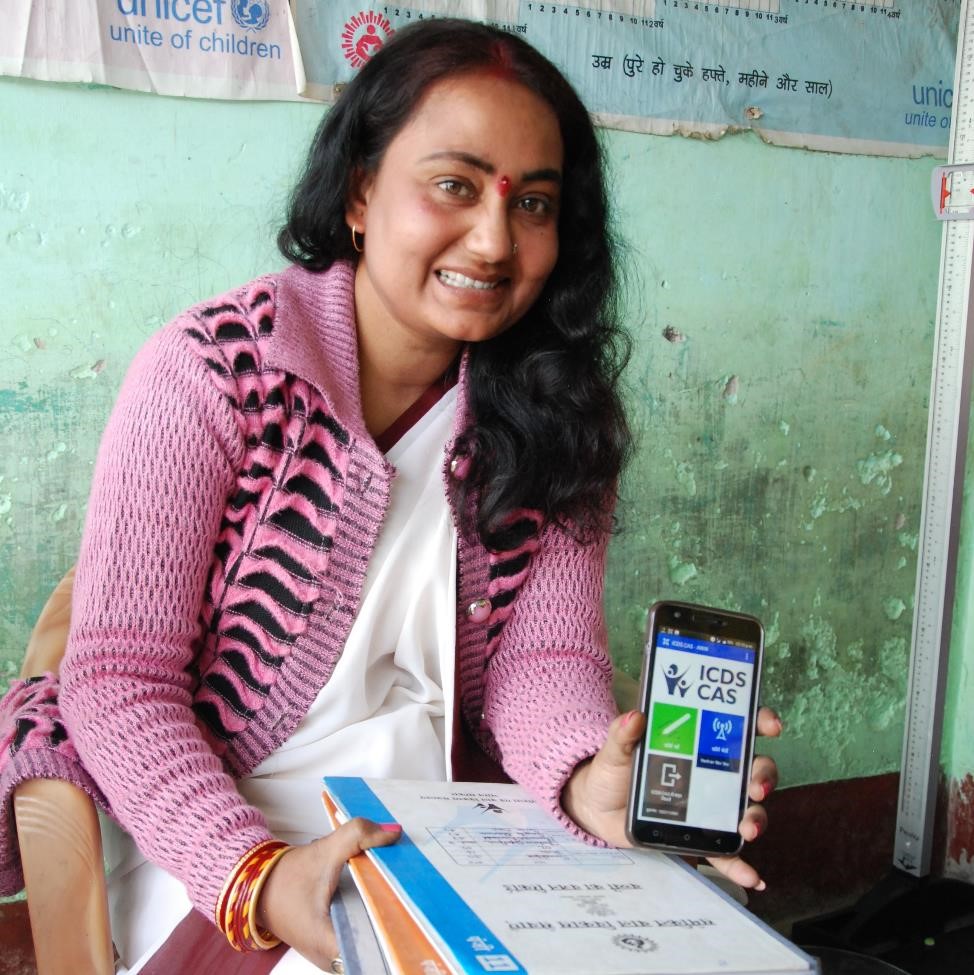
CARE Failing ForwardStudy, analyze, adjust quickly: the Bihar Technical Support Program's concurrent measurement and learning approachDr. Tanmay Mahapatra and Dr. Shridhar Srikantiah from CARE India’s Bihar Technical Support Program explain how they use data to catch failures and make adjustments in real time with their Concurrent Measurement and Learning approach. Learn more at: bihar.care.org
2021-01-1926 min
CARE Failing ForwardWe are not immune: unlearning white supremacy in international development"If you are not uncomfortable, you are not having the right conversations." Andres Gomez de la Torre from CARE talks about what we have to do in our work to be actively anti-racist. From the big changes to the small habits, from the individual to the organization, we need to accept that our work is built on a history of colonialism, and we all have to do the work to change our ideas about what it means to support social justice. "It's not just an HR issue. Thinking that is a mistake." We have to make changes across all...
2020-12-0723 min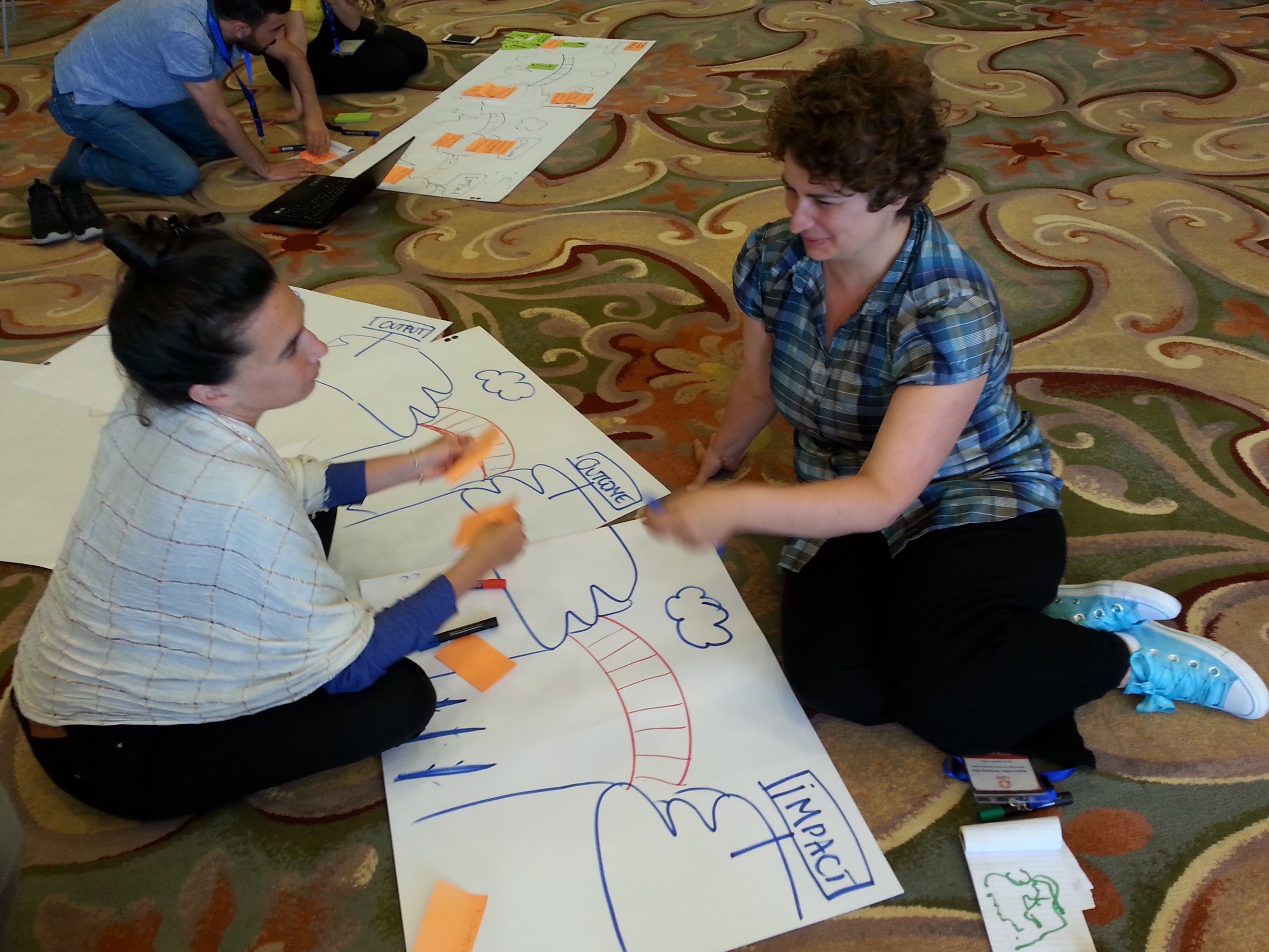
CARE Failing ForwardFail Again. Fail Better.Fiona Cooper talks about her experience leading the research for round two of CARE's Learning From Failure initiative, and…I know this will surprise everyone…we haven’t stopped failures yet. We do have some hopeful signs that we’re failing better. Fiona talks about the importance of looking internally, acknowledging that everyone fails, and finding ways to be honest about failure in a sector that's not really comfortable with it.
2020-11-1920 min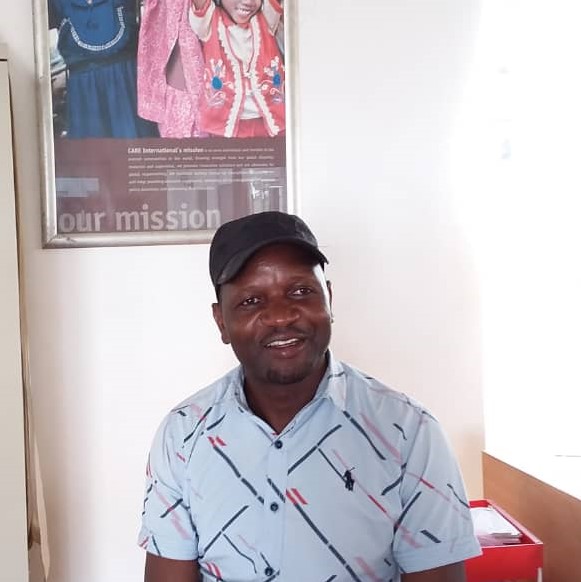
CARE Failing ForwardData in the time of COVIDClement Bisai from CARE Malawi talks about what he and his team are learning about how to do better remote data collection. Focus, listen to communities, and reflect regularly are his key takeaways. Don't expect to outsource everything. Digital remote data collection may be the best way to work in COVID-19, but we're already learning how to do it better.
2020-11-1217 min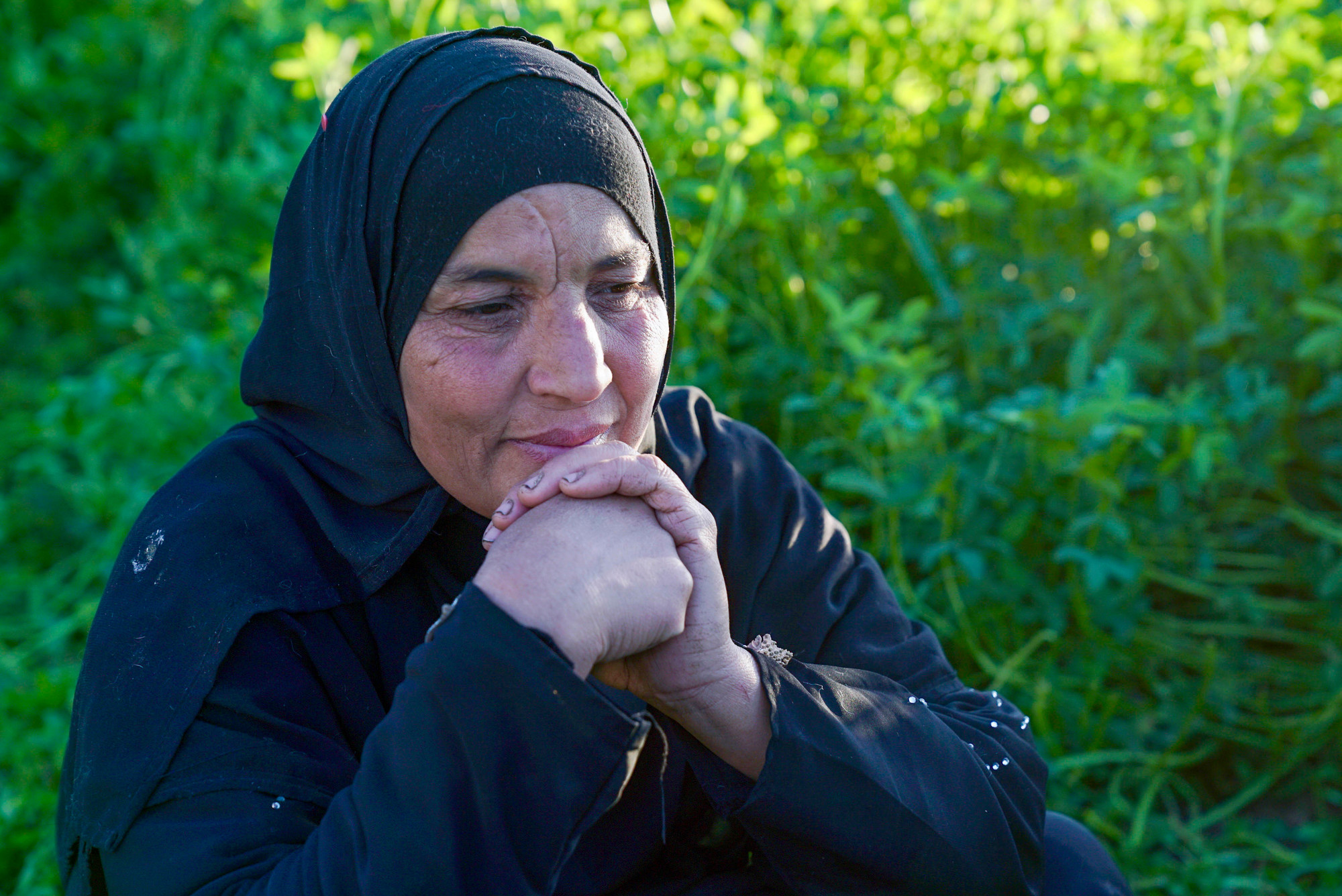
CARE Failing ForwardDream Big, But Move MethodicallyHazem Fahmy from CARE Egypt talks about the journey from being a country office to becoming an independent member of the CARE family. What are some of his key lessons? First, don't spend all your time planning--test out actions and adapt. Second, learn to listen for what people aren't telling you; trust is critical for organizational change. Third, keep your principles firmly in mind as a north star. It can be easy to lose track of why we're transforming in the excitement of growing a business.
2020-10-2920 min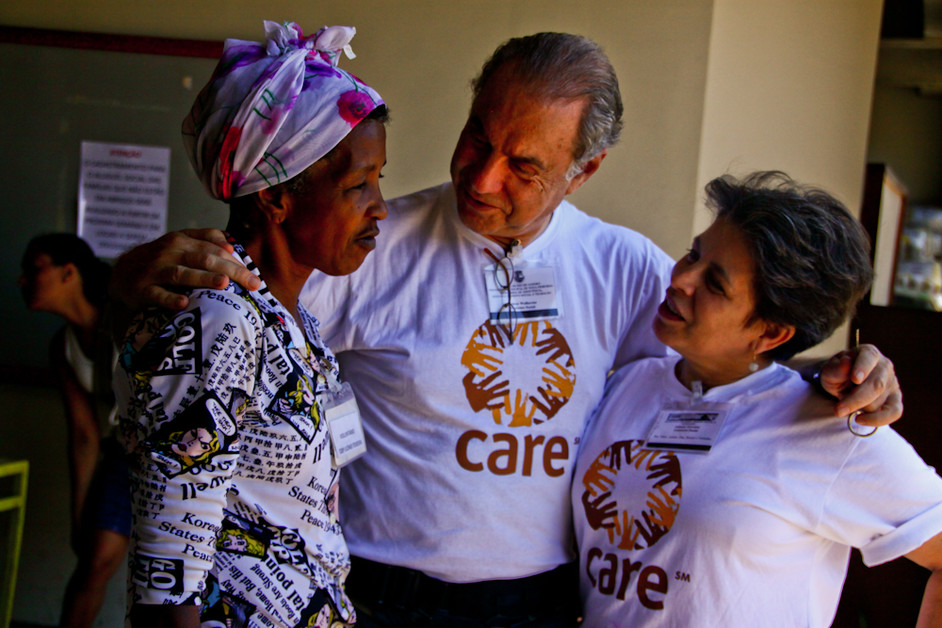
CARE Failing ForwardImplementers vs. AlliesTatiana Bertolucci--CARE's Regional Director for Latin America and the Caribbean--talks about what she learned closing the CARE Brazil office. We need to engage with curiosity and treat organizations in the global south as powerful allies, not people who merely implement our agenda. We also need to invest in more diverse boards. "There is knowledge everywhere if we will listen to it." Another lesson is "scream for help sooner" when something is not working.
2020-10-1419 min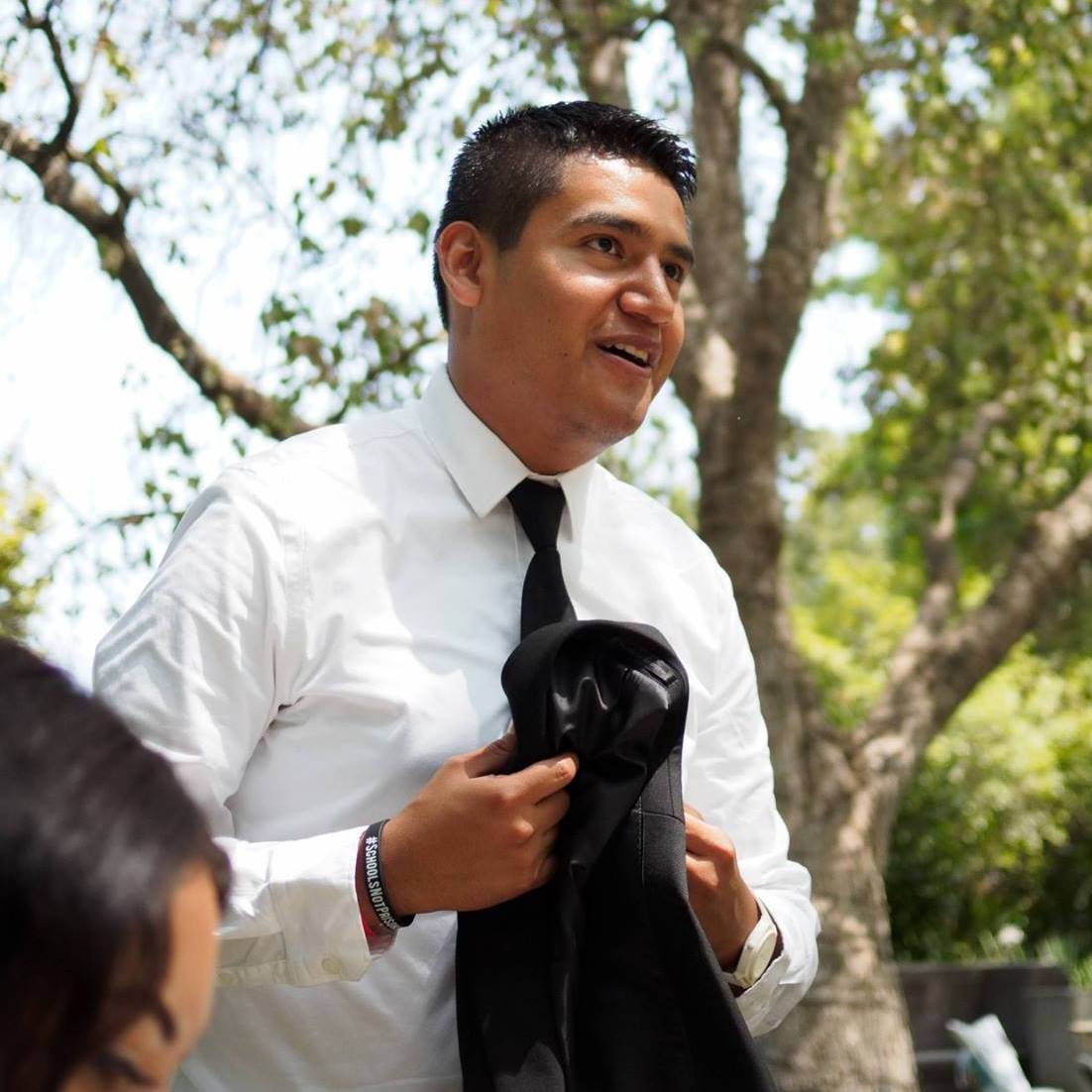
CARE Failing ForwardUndocumented and Unafraid: Rethinking VulnerabilityFind out why Randy Villegas from UC Santa Cruz is rethinking is definition of vulnerability when it comes to undocumented youth in California. They certainly face extreme challenges, but what he has seen youth organizers do in the context of COVID-19 has Randy wondering, "what if it's elected officials who are vulnerable if youth keep being activist?" Learn more from Randy's work with young people, and lessons like "you need to be there even when it's not an election year," "stop the flyover organizing," and "youth are brutally honest."
2020-10-0118 min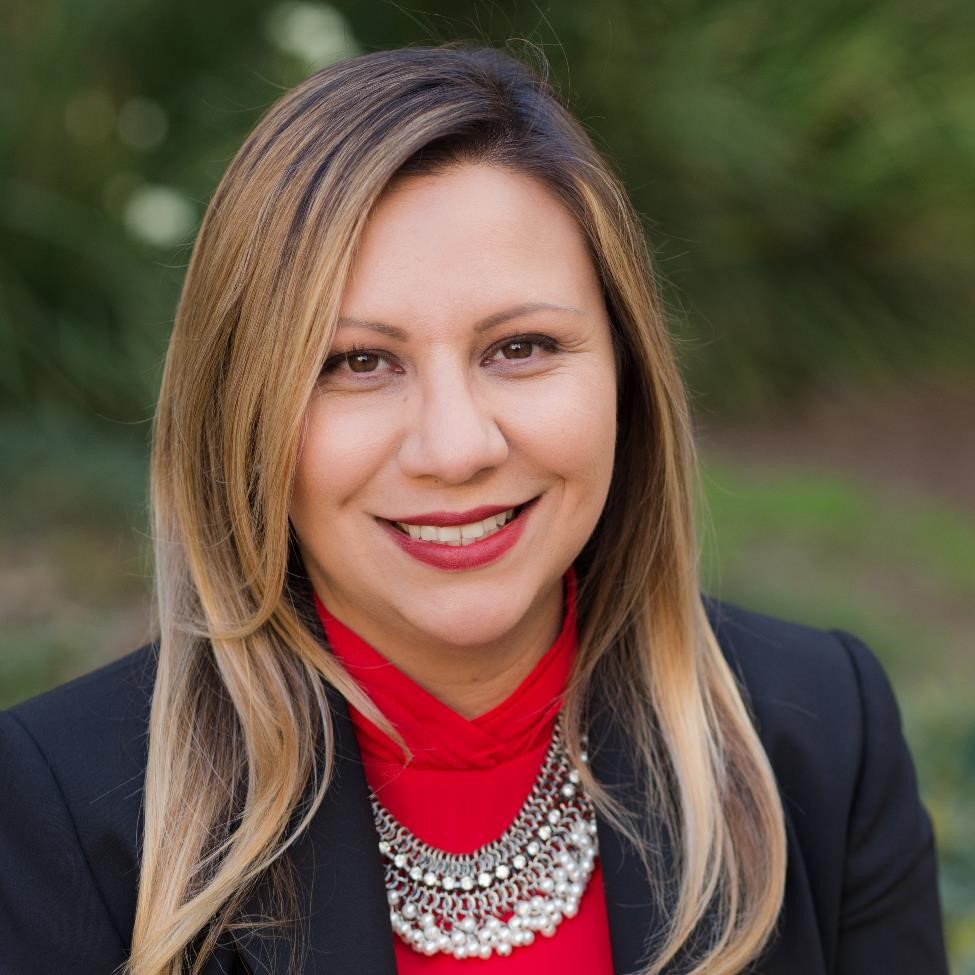
CARE Failing ForwardThe Power of Risk: Contingency Plans, Relationships, and other lessons from COVIDDeyanira Nevarez Martinez from UC Irvine talks about the challenges of doing research in COVID-19, and the importance of contingency and risk management planning. How would you plan if you thought everything might go wrong? What are your alternatives for each step of your process? When COVID-19 turned everything upside down, Deyanira talks about strategies for moving research forward. Deya's research is in California, but she's got advice that can apply for everyone in the world.
2020-09-1712 min
CARE Failing ForwardRumors, Trust, and COVID-19Salah Hamwi from CARE Turkey talks about lessons learned in fighting rumors and misinformation about COVID 19. "We're fighting against time," he says. You have to get good information out first so that rumors don't have the space to grow and spread. Using digital platforms, getting leaders involved, and using evidence to shape your programs are all other key steps.
2020-08-1317 min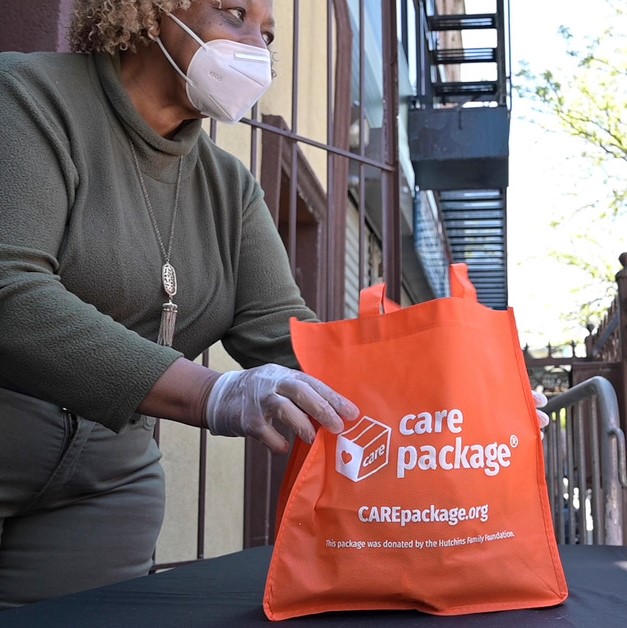
CARE Failing ForwardA Grain of Truth in Opposition: Launching new programs in difficult timesRyan Shepard talks about launching CARE's first US-focused project, creating jobs and feeding kids impacted by #covid19. It wasn't an easy lift and "depended on a lot of things all going right at a very uncertain time." What are Ryan's takeaways? Listen for the truth that will make you stronger, even when people's feedback is discouraging. Believe in the core of what must work, constantly refine the details, and make decisions true to your principles.
2020-07-2920 min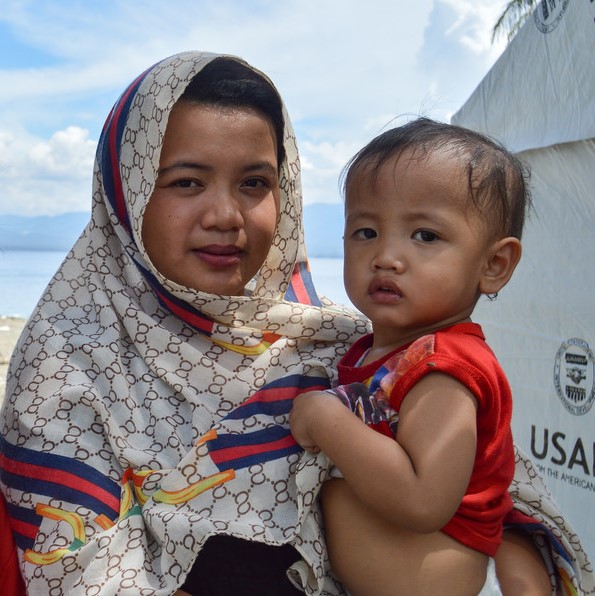
CARE Failing ForwardCARE of 1000 Papers, Part 2: Improving the way we work with partners in crisisPuji Pujiono of the Pujiono Center and Victoria Palmer from CARE Canada talk about their paper based on the Sulawesi response in Indonesia.This time, they talk about what organizations can do once a crisis has already started to have better success with partners, and help them achieve their goals rather than hurt them.
2020-06-1824 min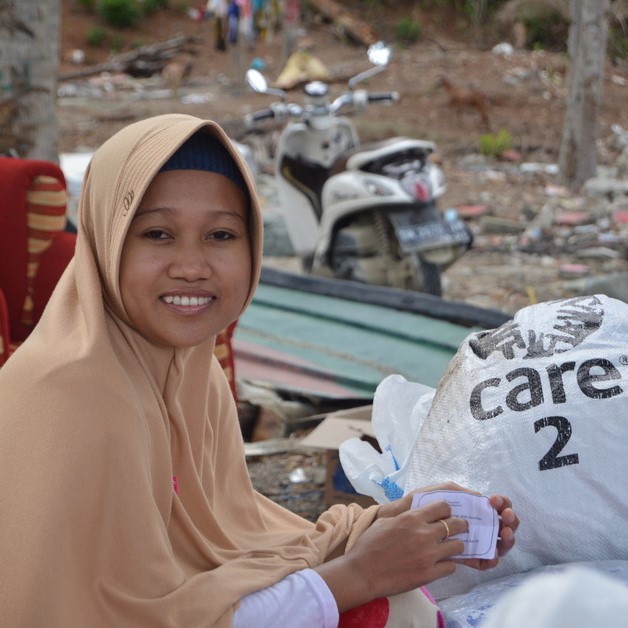
CARE Failing ForwardCARE of 1000 papers: How our best intentions can hurt local activistsHow do international NGOs create problems when they team up with local activists? It's the CARE of 1000 papers, where our processes are so focused on reducing risk that we bury local groups under the weight of our expectations, and don't give them the support they need. Puji Pujiono of the Pujiono Center and Victoria Palmer from CARE Canada talk about their paper based on the Sulawesi response in Indonesia, where we learned a lot about what we can do BEFORE we reach out to local partners so that we're truly helping response and empowering those partners. Stay tuned for...
2020-06-0418 min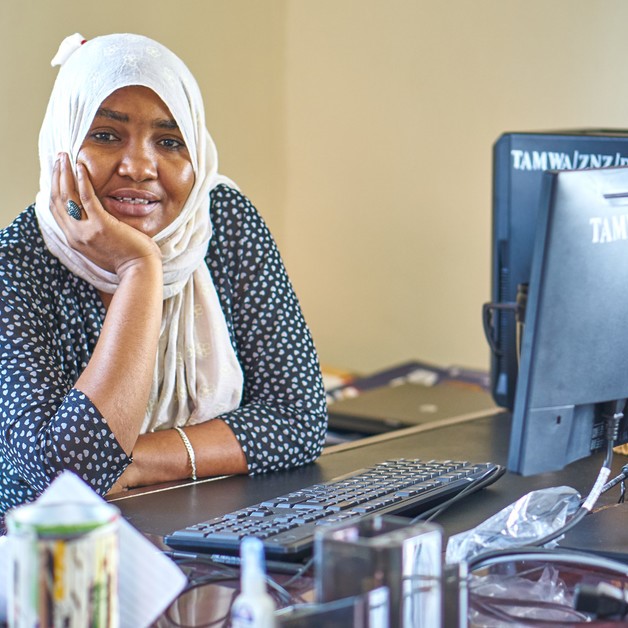
CARE Failing ForwardDesigning Data Systems in Crisis: Act Quickly, Iterate Fast, and Think to the FutureJay Goulden talks about designing a data system to collect information on pandemic response in 78 countries--a first for CARE. He says act quickly, iterate fast, and think what your system might need to be in two weeks or a month as the situation evolves. He also talks about reducing burdens on over-taxed staff, streamlining systems, and connecting data collection to data use. Oh--and make it beautiful to look at.
2020-04-2015 min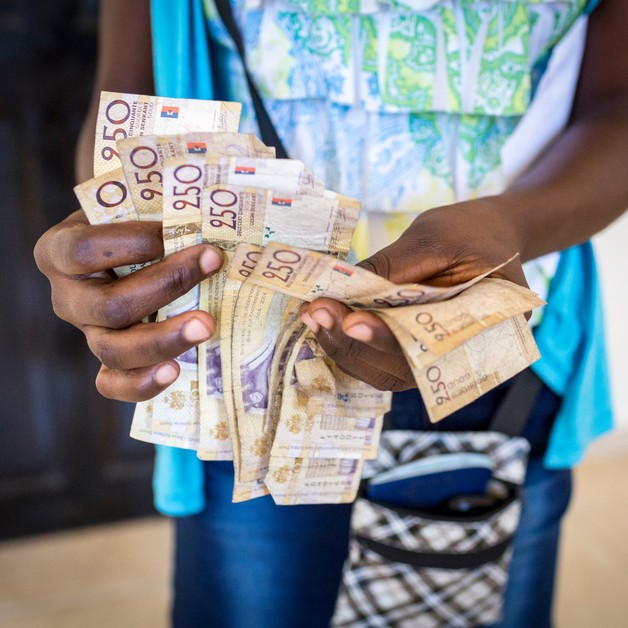
CARE Failing ForwardDon't Jump Straight to Digital: What Ebola Taught Us About Trying to Force New Systems in CrisisHolly Radice talks about how people have limited bandwidth to adopt new things in crisis, and how cash transfers in Ebola failed at digital solutions because of unrealistic expectations. Her recommendations: do everything you can to adapt and expand existing systems to push out cash safely, examine your context very carefully and frequently to see what market approaches work, and start planning now for cash transfers during recovery in a few months. Be empathetic to participants and financial service providers, and respect that everyone is affected. Finally, stay in touch with partners and cash working groups to find solutions...
2020-04-1316 min
CARE Failing ForwardFrom Supervision to Empowerment: New Ways to Partner for Sustainability (English Version)In this translation from the French Episode, Sandra Georges from CARE Cameroon talks about the CHAMPS project, and how they have had to move from "make others do" to "do together" to "let others do." It involves changing the way we think about partnership, gradually handing over responsibility, and believing local teams and communities about what approaches work best.
2020-04-0612 min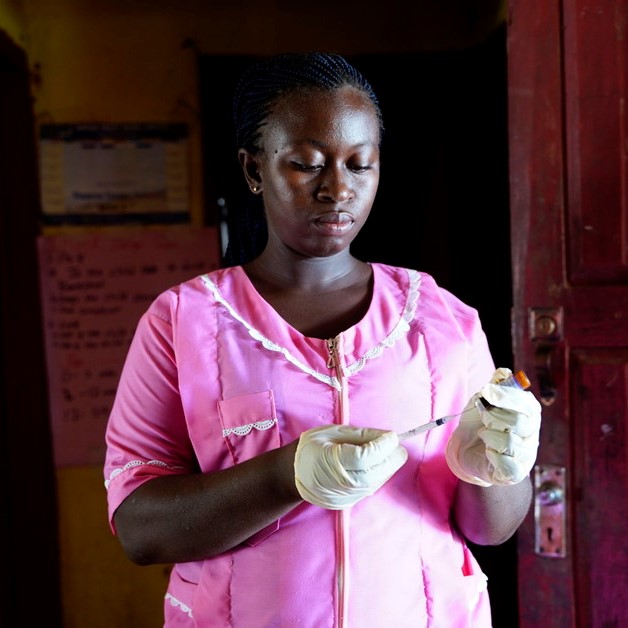
CARE Failing ForwardPush Aside the Panic: Thinking Bigger than Just a Health Response to COVID 19Alfred Makavore, a key responder in CARE's Ebola response in Sierra Leone in 2014-2015, share's lessons about how to improve our COVID-19 response. "At first, we thought it was just a clinical problem, and we treated it like that." Alfred encourages teams to think beyond a clinical response, to understand what communities are facing, and to build trust. "We have to push aside the panic." Engaging governments, setting up local coordination, and trusting field teams to make decisions are some of his key recommendations.
2020-03-2715 min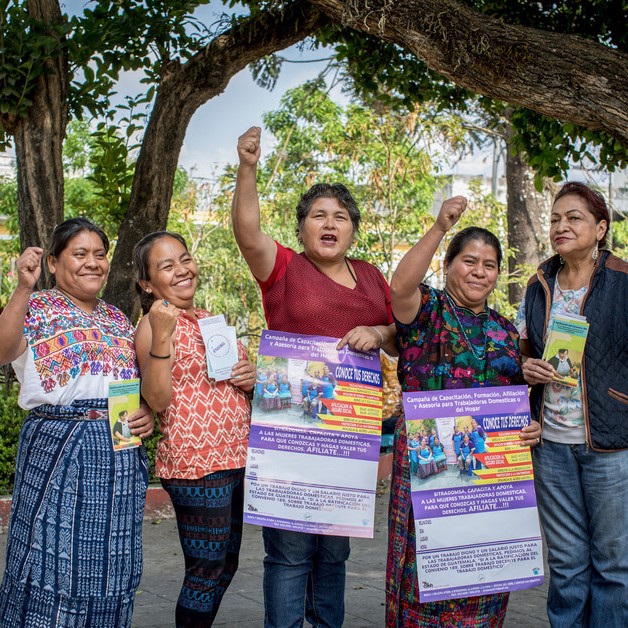
CARE Failing ForwardExpect to Fail: Advocacy, Partnership, and Women Workers' RightsDaniel Almeida from CARE's Latin America Regional office warns, "Don't lose sight of the real reason you are doing this work." He's talking about how to do advocacy more effectively in partnership with social movements. Do your political economy analysis, have clear communication with partners, invest for the long term, and expect to fail. He tells teams, "not to expect to have results that are 100% things that they showed in the design." Learn more about this work from the recent paper: CARE International Advocacy and Influencing.
2020-03-2515 min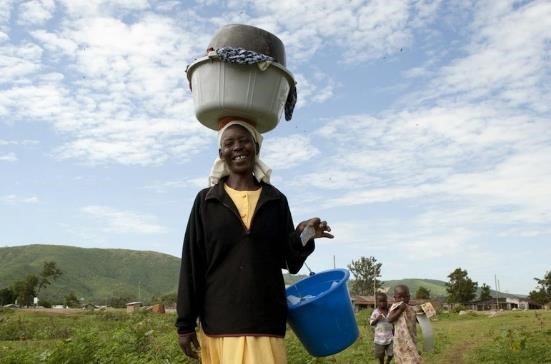
CARE Failing ForwardPlanning a Better COVID-19 Response: How Mistakes from the Ebola Crisis Can HelpLearn to act with imperfect information. Take calculated risks. Remember who is most at risk. Those are just some of the calls to action from Andres Gomez de la Torre, drawing on CARE's learning from Ebola response. Originally recorded in August of 2018, this podcast has critical lessons that CARE is using today in planning our COVID 19 response, and are an important call to action as we know some of the world's poorest countries are about to get hit with a crisis for which they are not prepared.
2020-03-1612 min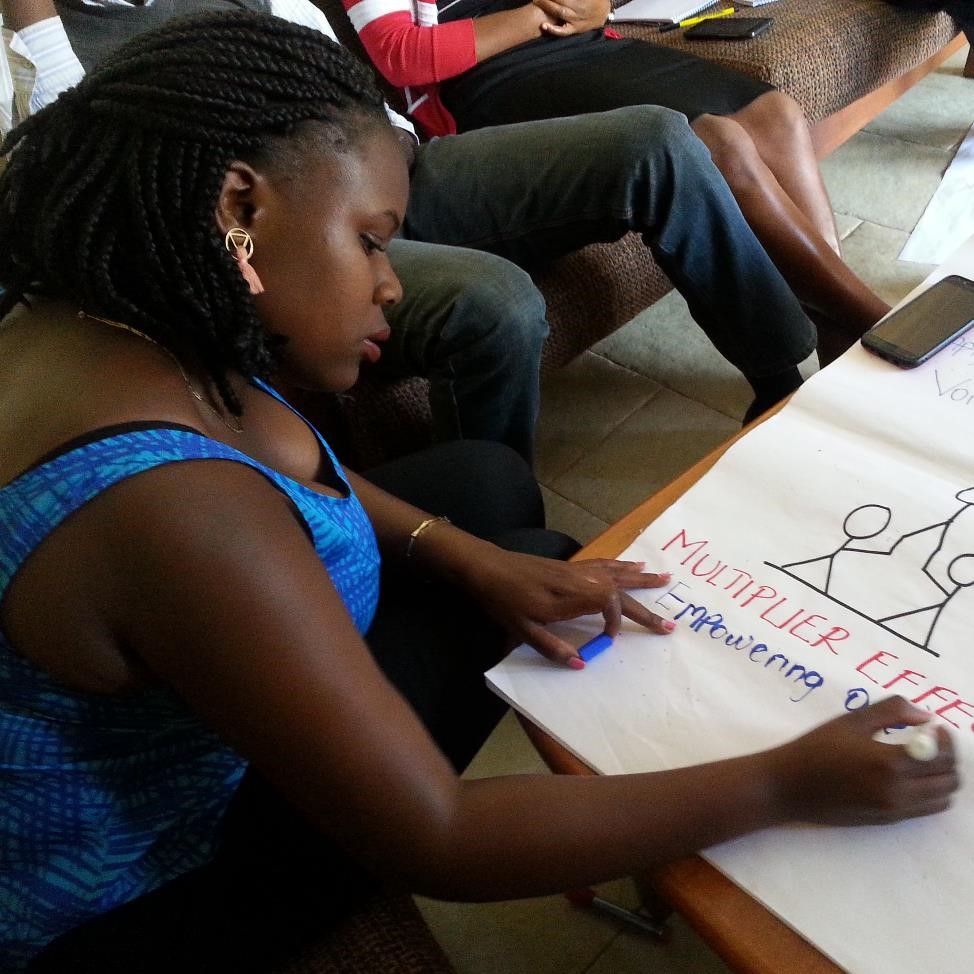
CARE Failing ForwardIt will never happen in 6 months: Lessons from building financial apps in UgandaMelch Natukunda from CARE Uganda talks about trying to build the first ever financial services app that linked poor rural women to banks. What's the biggest lesson? "it’s not just financial services. Anything we do should be trying to lighten women’s burden and help her with the other challenges she’s dealing with.” It's also about remembering that, "at a bank, someone is looking at this project and saying, 'is this giving me profit?' That will never happen in 6 months." You need at least 5 years to build something that will really work, but once you've got it, it c...
2020-03-0417 min
CARE Failing ForwardJust Live It: How to learn from failure in the conservation sectorIain Dickson from Birdlife talks about his project, "Embracing Failures" which is developing a failure taxonomy that helps conservation organizations learn about the underlying causes of failure. What can we do to get better at learning from failure? "Just live it," says Iain. "We think about it as a complex overarching problem, but many of the solutions are simple." One of the key solutions they found was that there's appetite to talk about failure, but it works best when this is a conversation, and not an exercise filling out forms.
2020-02-2812 min
CARE Failing ForwardFrom Supervision to Empowerment: New Ways to Partner for SustainabilityEpisode Francophone:Sandra Georges de CARE Cameroon discute le projet CHAMPS, et la transition de supervision a l'autonomisation. Ils changeaient leur approche de "faire faire" a "faire avec" a "laissez faire". L'approche comprenne la transition graduelle, un changement d'avis sur le partenariat, et la confiance aux communautes.
French Episode: Sandra Georges from CARE Cameroon talks about the CHAMPS project, and how they have had to move from "make others do" to "do together" to "let others do." It involves changing the way we think about partnership, gradually handing over responsibility, and believing local teams and communities about...
2020-02-1314 min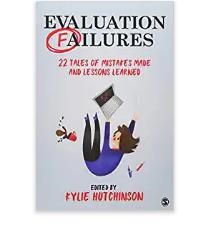
CARE Failing ForwardWalking the Tightrope: Balancing Participation and Independence in EvaluationsKylie Hutchinson, independent evaluator and author of three books about evaluation and program planning: Evaluation Failures: 22 Tales of Mistakes Made and Lessons Learned, A Short Primer on Innovative Evaluation Reporting, and Survive and Thrive: Three Steps to Securing Your Program’s Sustainability talks about how to learn from common evaluation failures to improve impact and social justice. Her two tips are learning how to engage stakeholders more effectively and understand context when you're doing an evaluation. Here are three questions to ask yourself before launching an evaluation: 1) What are we trying to learn? 2) What are we going to do about...
2020-01-2916 min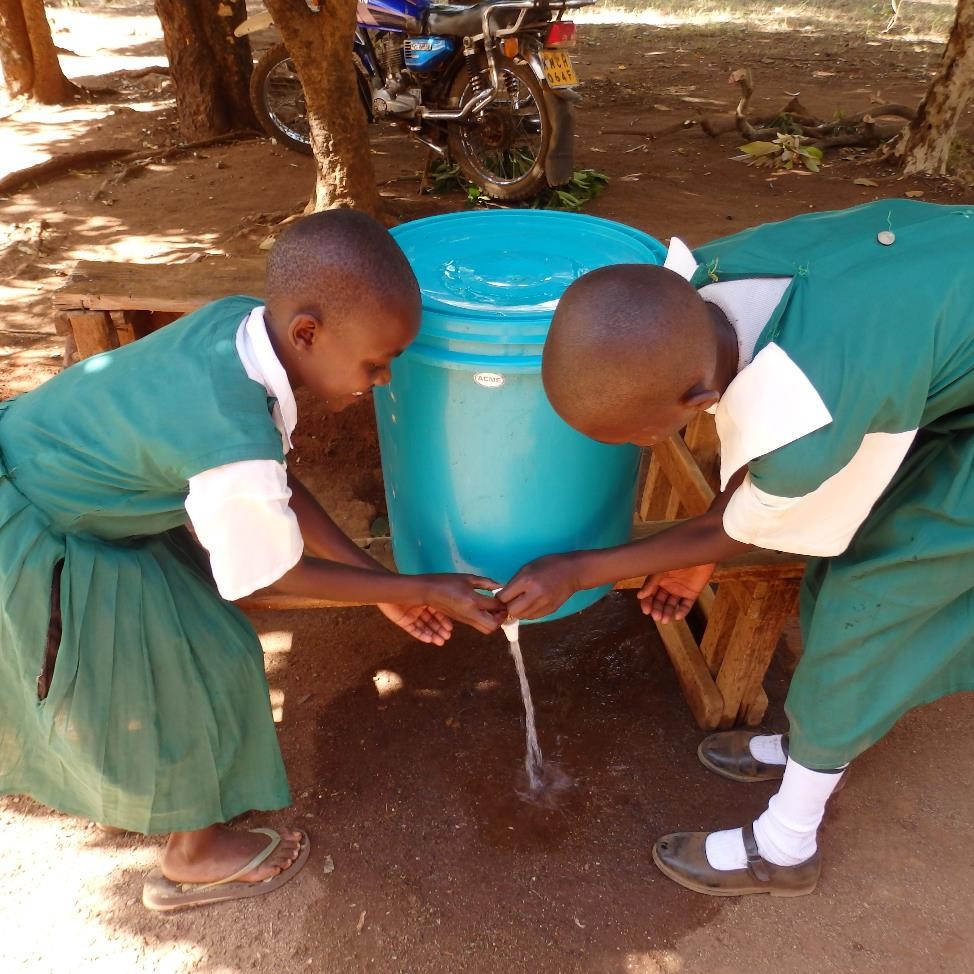
CARE Failing ForwardUnderstand Your Entry Points: How Admitting Failure Transforms PolicyPeter Lochery from CARE and Matt Freeman from Emory University discuss how research showed our programs weren't sustainable, and how admitting that failure helped drive innovation and national policy transformation in Kenya. They talk about 13 years of research partnership in the SWASH+ project--and how influencing policy has to be based on a willingness to admit what's not working, and an understanding of entry points and how the system works.
2020-01-1612 min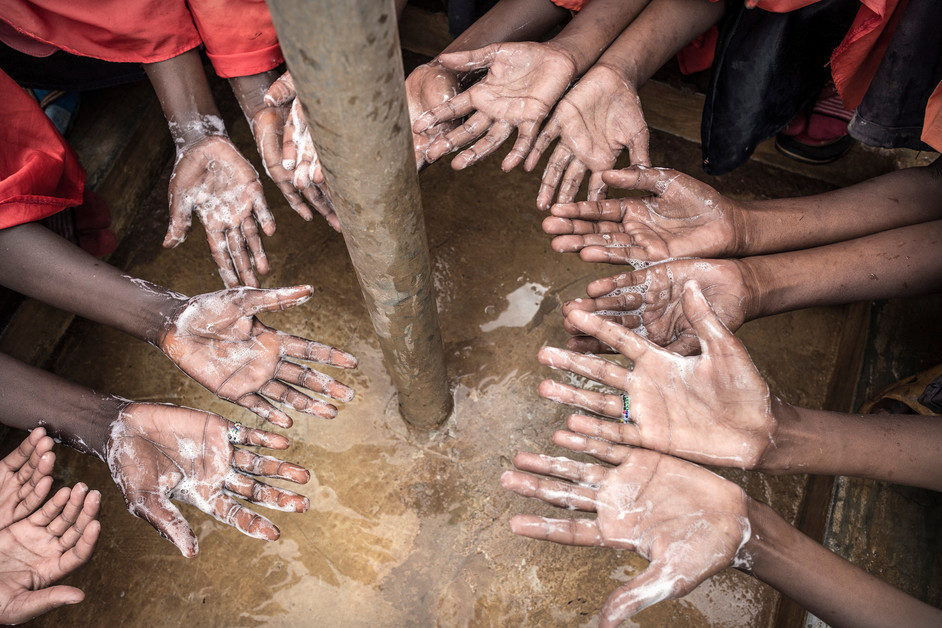
CARE Failing ForwardAnswering Practical Questions Instead of Academic Ones: How to design research that makes more sustainable programmingLearning to be less dogmatic about answering the most important academic questions, but instead focus on the practical questions that would allow project teams to "innovate and push" around creating sustainable programs for WASH in schools. Matt Freeman from Emory University and Peter Lochery from CARE talk about what they learned trying to create research that moved programs forward, and allowed us to get better at the work--even when it wouldn't contribute to publications in prestigious journals. They talk about 13 years of research partnership in the SWASH+ project--and how lots of smaller, practical studies with rigorous methods were more...
2020-01-0916 min
CARE Failing ForwardScale and Replication: How the MENA Region is Using Failure to Create Programs that Last"Fear of failure is the only thing that ensures your dreams won't come true." Hiba Tibi from CARE's Middle East and North Africa hub talks about what they're learning from programs that didn't work, and how they are using those lessons to improve sustainability and scale. A big lesson is that Women's Economic Empowerment programs have to focus on both gender equality AND solid business cases--but many programs only manage one or the other. You can check out more lessons in the recent paper: Bringing Gender Equality Closer to Women's Economic Empowerment.
2020-01-0210 min
CARE Failing Forward9 Things You're Probably Doing Wrong: Lessons from Global Cash ProgrammingHolly Radice--CARE's Global Cash and Voucher Assistance Advisor--talks about the most common mistakes she sees when people implement cash programming. Some of her tips? Pay attention to GBV, focus on women and engage men, and most of all--don't be afraid of cash! There are lots of resources that can help you get it right.
2019-12-0518 min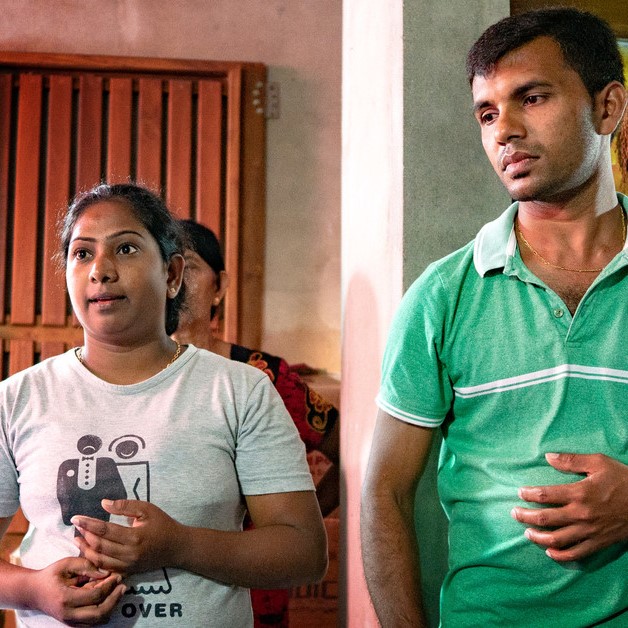
CARE Failing ForwardWhat's Wrong With Happy Families?How can using the phrase Happy Families actually hurt women and set feminism back? Jayanthi Kuru-Utumpala and Zainab Ibrahim from Chrysalis--a CARE affiliate in Sri Lanka--tell us lessons learned from the EMERGE project engaging men and boys, and working with feminist groups. Some key lessons: let local groups take the lead, engage with respect and humility, and pay attention to your wording. Concepts need to translate not just in language, but also in ideology. Also check out the paper on working with social movements, and how we can improve women's rights by taking a back seat.
2019-11-2215 min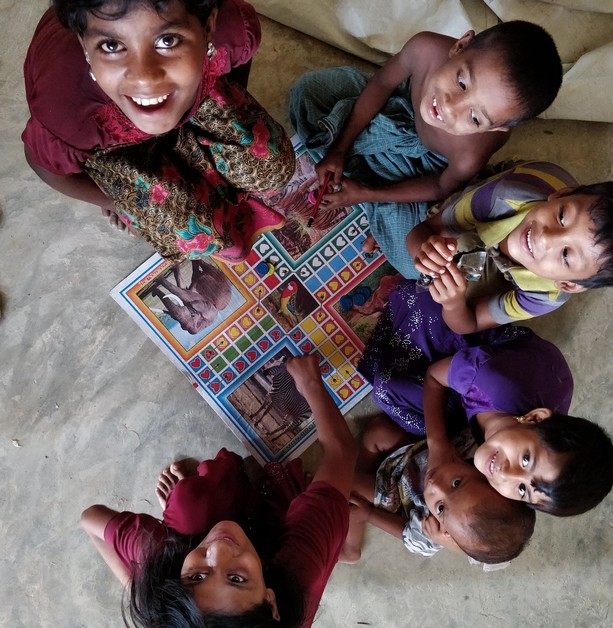
CARE Failing ForwardDesign For Everyone, Not for Experts"You need to design for real people, not for experts." "Be ruthless with what you really need, and what's just nice to have" Isadora Quay from CARE's Gender and Emergencies work discusses CARE's Gender Marker, and all of the attempts it took to get to a tool that would actually work for the organization, not just the experts. It's about building tools that can turn everyone into a gender champion, and not tools that contain everything. The other secret? Design on a napkin!
2019-10-3013 min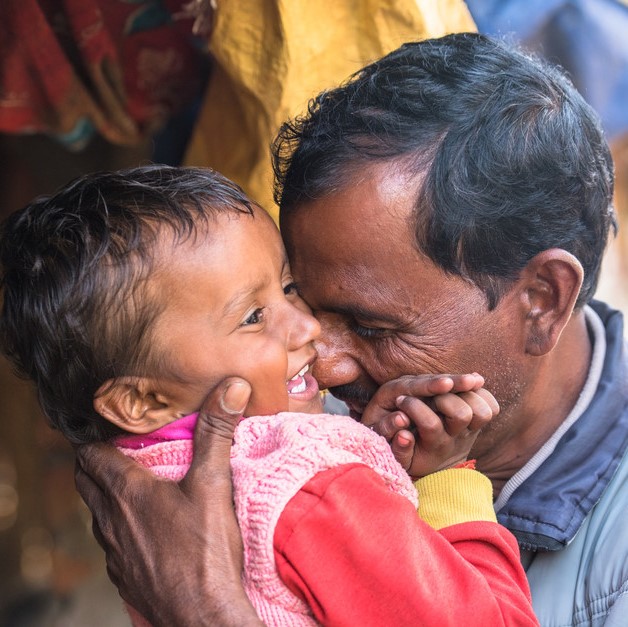
CARE Failing ForwardSquare Pegs and Round Holes: Fitting research to community needsAnne Sprinkel and Dipendra Sharma from CARE's Tipping Point project talk about the challenges in implementing RCTs, and the risk of sacrificing communities' needs to the methodological rigor that researchers demand. "Make sure you have a good reason for doing an RCT," says Sprinkel. Sharma adds, "Start with good programming, then build research around it." They also have some great tips for managing expectations, clear communication, and just how long it takes to do it right (Hint: it's a lot longer than you think).
2019-10-1724 min
CARE Failing ForwardHurry Up and Wait: How Working With Young People in VSLA Changes the Pace of ProgrammingZegeye Bante from CARE Ethiopia talks about working with youth VSLA, and what changes that requires from our traditional models. Youth are visionary and impatient, and want to meet their goals fast, so we have to accelerate our programming. At the same time, making sure that young people really understand the model, and that their parents and teachers accept and support the work we are doing takes a lot longer than it does with adult groups. So we have to find ways to build in more time at the beginning, and then get faster results so youth keep coming...
2019-10-0914 min
CARE Failing ForwardExciting Times: Creating Urban Savings Groups With No ExperienceGrace Majara and Takara Morgan talk about starting savings groups in Uganda's cities in 2008, with no experience, and no one on the team who had ever done it before. We assumed that the city VSLAs would be exactly the same as rural ones, and we were wrong. Differences in financial literacy, poor access to services, and the need to bring in people who understood the context are all key lessons from Grace's decade of experience in the space.
2019-09-2612 min
CARE Failing ForwardMobility, Instability, and Crisis: Creating Savings Groups in EmergenciesCamille Davis and Barack Kinanga talk about the challenges of creating savings groups (VSLAs) in emergency settings. Barack works in Yemen, where they have been able to create savings groups, but only by making a lot of adjustments to our traditional model. Not every context works for VSLAs, and it takes longer for people in crisis to build up savings than in development settings. We also have to think about what happens if the people have to move again, and what they need to build resilience.
2019-09-1917 min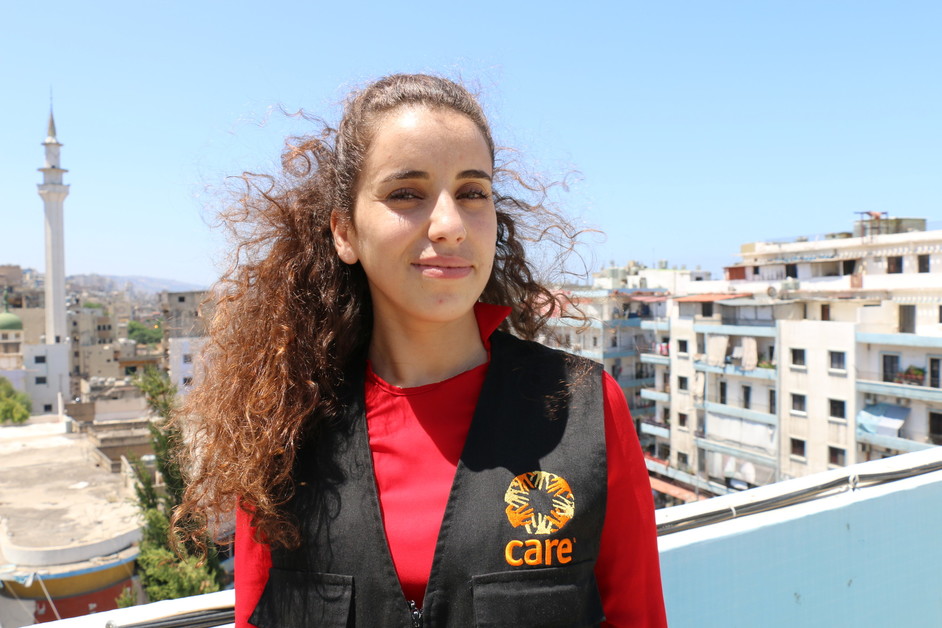
CARE Failing ForwardEmbracing Imperfection: Rapid Gender Analysis and Knowing You Don't Have All the AnswersIsadora Quay talks about the process of developing CARE's Rapid Gender Analysis, and how embracing imperfection is key to saving lives. When we want everything to be perfect, that often means we delay or prevent sharing any information at all, which can be catastrophic in humanitarian (and development) settings. Making tools useful for a broader range of people, and focusing on practical, tangible suggestions, and analyzing results in plain language for non-experts are some key lessons to take forward. "Act fast, there's a huge need for real information in real time." Isadora argues that failure is inevitable, so we...
2019-09-1215 min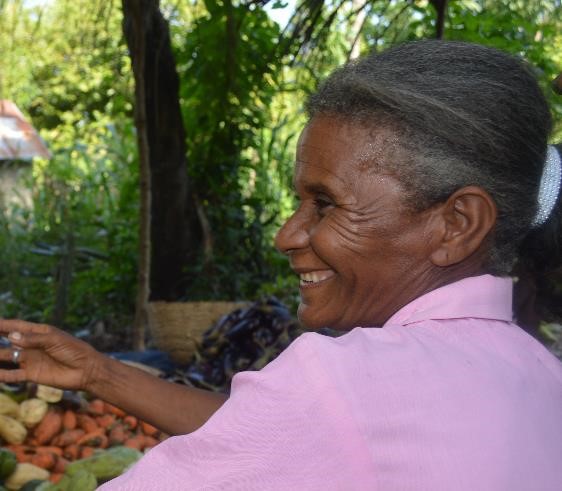
CARE Failing ForwardSoyez Courageux et Realiste: Le lecons pour la creation des projets qui marcheYawo Douvon et Barbara Jean Claude de CARE Haiti discute l'importance d'avoir le courage de dire quelque chose ne marche pas. Il faut du courage pour expliquer que les objectives ne sont pas realiste, et que nous risquons de ne pas tout accomplir. Avoir l'analyse du context--meme dans les cas d'urgence--le renforcement des rapports avec les bailleurs, la suivi des indicateurs, et la communcation sont tous les outils qui peuvent vous aider.
2019-08-2915 min
CARE Failing ForwardBe Bold and Realistic: Creating space for project plans that will workYawo Douvon and Barbara Jean-Claude from Haiti talk about the importance of being bold when it comes to admitting that something won't work. It takes courage to point out that goals and expectations are unrealistic, and that we might not get everything done. Getting good context analysis--even in emergencies--building solid donor relationships, carefully monitoring data, and being proactive in communications when something goes off track are all tips that can help you through a rocky project implementation. (French version will be coming the week of August 26th.)
2019-08-2212 min
CARE Failing Forward(English Version) Tell Yourself You Don't Know Everything: Lessons Learned and Near Misses from 25+ years of VSLABy popular demand, we've translated the August 1 Francophone episode into English. When CARE first started working with Village Savings and Loan Associations (VSLA) in Niger, we nearly broke the model because we were sure that we knew what to do, and women were wrong. Field staff were afraid to tell us that women were sharing out the money--a practice that is now a cornerstone of a global approach reaching millions of people. Why? Because it went against all of our assumptions about economic empowerment. Dr. Fatma Zennou from Niger talks about how to create a culture where people are...
2019-08-0914 min
CARE Failing ForwardTell Yourself You Don't Know Everything: Near Misses and Lessons Learned from 25+ Years of VSLAEpisode Francophone. Quand CARE a commence le travail avec les Associations Villageois d'Epargne et de Credit (AVEC) au Niger, nous avons presque casse le modele parce que nous étions sûrs de notre approche, et que les femmes villageois se trompaient. Les animatrices avaient peur de nous dire que les femmes partagaient la caisse--ce qui est maintenant une pratique cle pour l'approche pour les millions de personnes. Pourquoi? Parce que cela a defie nos assomptions sur l'empowerment economique. Dr. Fatma Zennou du Niger discute la creation d'une espace ou les gens n'ont pas peur de discuter les innovations et l...
2019-08-0114 min
CARE Failing ForwardCommunities Creating Plan B: How Sanitation Approaches Failed in Benin, and Communities Found a SolutionIn our second francophone episode, Huguette Sekpe Sossouhounto from CARE Benin/Togo talks about how CLTS (a common sanitation approach) failed in her project, and how communities helped them find a Plan B that works. What are the key lessons learned? Pay attention to signs that something is going wrong, and then, "talk to the communities about what their dreams are, and how they can achieve those dreams." Local partners can help you find a solution.
2019-07-1817 min
CARE Failing ForwardLearning Backwards: How decisions we need to make should drive learning agendasEmily Janoch from CARE's Impact and Learning team talks about all the wrong ways she has tried to do learning agendas, why she kept repeating the same mistakes, and the counterintuitive solution that works for her.
2019-01-3015 min